
- Translation

Top U.S. Translation Schools: Master’s and PhD Programs
So, you’ve decided to take the next big step and pursue a Master’s or Ph.D. with a focus on translation and/or interpreting. Finding the program that’s right for you can be exhausting and time-consuming, so we’ve put together this list to help you get started.
In this article, you’ll find descriptions of some of the best interpreting and translating Master’s and Ph.D. programs in the country, offering specializations in professional translation, conference and community interpreting, public service interpreting, legal and financial translation, and general translation studies. The list is alphabetical and unranked. Most are full-time programs that will take between one to two years to complete.
If you’re interested in studying translation and interpretation but don’t have the time to devote to an MA or Ph.D., consider reviewing our list of the top U.S. Certificate Programs.
Binghamton University Location: Binghamton, New York Type of Program: MA or Ph.D. (Translation) Duration: ~ 1.5 years (MA) Number of credits: 32 (MA)
In addition to their doctorate in translation studies, Binghamton University offers a vocationally-oriented translation studies degree, which must be pursued in conjunction with a graduate certificate in translation. This is the less traditional of two tracks offered within the master of arts program, the more traditional track putting greater emphasis on comparative literature and interdisciplinary studies involving literature. Students who are drawn to the more traditional track may also take the graduate certificate in translation alongside the MA. Notably, for this program, students are required to possess a working knowledge of two foreign languages and to take literature courses in both.
Kent State Location: Kent, Ohio Type of Program: MA or Ph.D. (Translation) Duration: 2 years (MA) Number of Credits: 60 (MA)
Kent State offers a Ph.D. and MA in Translation, both of which focus on translation research skills, specialized translation, computer-assisted terminology and translation, software localization and project management for the language industry. For the MA, at least thirty credits must be devoted to studying outside of a student’s research and dissertation, including twenty-four credits of core courses, regardless of a student’s area of specialization.
Middlebury Institute of International Studies at Monterey Location: Monterey, California Type of Program: MA (Translation and Interpreting) Duration: 2 years (4 semesters) Number of Credits: 60
The Middlebury Institute of International Studies at Monterey offers a wide variety of degrees that prepare students for professional roles in cross-cultural, multi-lingual environments. They offer four different MAs within the field of translating and interpreting: the MA in translation and localization management, the MA in translation, the MA in translation and interpretation, and the MA in conference interpretation.
We’ll be delving into the localization management degree in a separate article. For the other three areas, students take courses in all three programs in their first year of study and work towards finalizing their degree decision for the second year. Additionally, unlike almost all other MA programs, students can choose to specialize in up to two languages out of the following: Chinese, French, German, Japanese, Korean, Russian, and Spanish. The translation MA prepares students for all kinds of translation careers, from medical to legal to literary translation. The program in translation and interpretation broadens the field of study to include interpretation, and the MA in conference interpretation specializes in conference terminology and instructs students in the practices of both consecutive and simultaneous interpretation.
NYU Location: New York, New York Type of Program: MS (Translation) Duration: 12 months – 5 years Number of Credits: 36
NYU offers an MS in translation that is online for the programs from English to Spanish, Spanish to English, and French to English, and on-sight for Chinese to English. It is one of the only programs in the nation that offers a curriculum specifically focused on translating into a language other than English (English to Spanish). The programs focus primarily on legal and financial translation, and the balance of required and elective courses allows students to ultimately focus more on one or the other. Students also learn about translation theory, linguistic analysis, and terminology management, and each language pairing includes background courses in comparative legal systems and economics. Students also benefit from the NYU Wasserman Center for Career Development, where they can work with advisors to search for jobs, build their resumes and improve their interviewing skills.
Rutgers University Location: New Brunswick, New Jersey Type of Program: MA (Interpreting and Translation) Duration: ~2 years Number of Credits: 30
Rutgers, a research university and the largest institute of higher education in New Jersey, offers an MA in Translation and Interpreting in Spanish. The program includes practice in legal, medical, technical, audiovisual, and literary translation, as well as community, court, and medical interpreting, most of which can be taken as part of 24 required elective credits. Advanced training in project management and translation technology tools is also incorporated. Notably, students can also elect to take courses in translation and interpreter training. A unique requirement of this MA is that all degree candidates must have some experience living in both English and Spanish-speaking countries, whether in a study abroad context or as a life experience. However, this requirement can also be fulfilled by taking part in the department’s Summer Study in Spain Program, or for foreign students from Spanish-speaking countries, through English-language coursework at Rutgers.
University of Illinois Location: Champaign, Illinois or online Type of Program: MA (Translation and Interpreting) Duration: 2 years Number of Credits: 32
The MA in Translation and Interpreting at the University of Illinois allows students to specialize in Translation for the Professions, Literary and Applied Literary Translation, or Conference and Community Interpreting. Although students can choose to specialize in interpreting, it does appear that the program’s overall focus is geared more towards translation studies, as all core requirements are translation classes and the final project is a Translation Studies Capstone Project. The program is full-time for two years and can be completed either online or on campus, with the same requirements in either format.
University of Maryland Location: College Park, Maryland Type of Program: MPS (Master of Professional Studies in Interpreting) Duration: 2 years Number of Credits: 44
The Master in Professional Studies in Interpreting at the University of Maryland offers two tracks of study: Conference or Public Service Interpreting. In both programs, the first year of study is geared towards cultivating the fundamental skills of consecutive interpreting and intercultural communication, while the second year delves into simultaneous interpreting, communication in political, legal, and/or healthcare settings, as well as training in language services management. This is one of the only interpreting programs that offer classes specifically geared towards teaching students the rhetoric of political and business institutions and that also trains students in the use of simultaneous interpreting technologies. It is currently open to students of Chinese, German, and Spanish, although other languages may be accommodated upon request.
University of Massachusetts Amherst Location: Amherst, Massachusetts Type of Program: MA (Translation) Duration: 1-2 years Number of Credits: 33
The Masters in Translation at Amherst focuses as much on translation theory as it does on the practice of translation, and special interest is given to cultural and literary studies within the translation. However, the final thesis does not have to be a literary translation. Instead, students may write on an aspect of translation theory, prepare a comparison of several translations of one original text, do a literary translation or a scientific, legal, medical, technical, or business translation, or create or translate a multi-media project, conduct a field study, or create a translation memory/database. Students must concentrate on two coherent literary/language/cultural traditions, though English can be one of them.
University of Texas at Dallas Location: Dallas, Texas Type of Program: MA or PhD Duration:1.5-3 years Number of Credits:33-60
The Master of Arts and Ph.D. in Humanities at the University of Texas at Dallas are non-traditional degrees that allow students to concentrate their studies around their individual translation interests using an interdisciplinary approach, wherein a focus on Translation Studies is combined with one or more of the following scholarly areas: Literary Studies, History of Ideas, or Aesthetic Studies. Both programs allow for students to major in one of those three areas (i.e. Ph.D. in Humanities with a major in History of Ideas) while gearing their study within the area toward various aspects of Translation Studies. Both programs require 6 credit hours in each of the three areas listed plus a number of electives and a final thesis.
Wake Forest University Location: Winston-Salem, North Carolina Type of Program: MA (Interpreting and Translation) Duration: 1 year/2 years Number of Credits: 34/37
Wake Forest offers both a Chinese-English and a Spanish-English MA in Interpreting and Translation Studies. The Spanish program consists of 34 credit hours to be completed in one year of intensive study, while the Chinese program is a bit longer, requiring 37 credit hours to be completed in two years of study. Both tracks are professionally oriented and research-based, aiming to provide students with the foundations to work in a variety of language-oriented capacities, including in foreign affairs, media, business, law, and healthcare delivery. Core required courses include an internship and applied research project in addition to formational courses in applied translation and interpreting, the contrastive grammar of the given language pair, localization and terminology, and sociolinguistics and dialectology. Electives, on the other hand, delve into domain-specific topics, such as medical and business translation.
Janet Barrow writes about the places where language meets history, culture, and politics. She studied Written Arts at Bard College and has fiction work forthcoming in Easy Street. Recently, she completed a diploma in medical interpreting. Raised in Minnesota, she currently lives in Lima, Peru.
- Category: Translation
Other Resources
- Language and Healthcare , Translation
The Role of Certified Translators in Medical Document Translation Accuracy
- Interpreting , Language and Healthcare , Language Testing , Language Training , Translation
Bilingual Pay Differential Benefits
- Interpreting , Language Testing , Translation
How to Build a Language Strategy for Companies Expanding to Canada
Get started today.
Interested in our language services? Complete the form or call us during business hours (9 AM to 6:00 PM ET) at 800.895.8210 .
Preparing for your test?
View our test prep materials or FAQ’s for common questions about taking a test.
Translation Studies (PhD, MA, certificate)
Program overview.
Binghamton University’s Translation Research and Instruction Program (TRIP) is the first doctoral degree in translation studies in the United States. In line with the University’s progressive and multifaceted approach to education at large, TRIP represents another way in which the University’s liberal arts departments continue to be pioneers in their fields.
The program prepares students for both the professoriate and for scholarly research, including research-informed translation, and it encourages individualized interdisciplinary research plans to accommodate a variety of backgrounds. A highly interdisciplinary program, TRIP offers opportunities for study on topics ranging from critical theory to comparative literature to pedagogy, among others. This broad sense of scholarship allows TRIP to utilize many of the University’s best resources and provides TRIP students with the opportunity to customize their own degree emphases.
Degrees Offered
- PhD in Translation Studies
- MA in Translation
- certificate in Translation
Internships, Research Opportunities and More
Depending on their interests, students will be able to choose electives from a variety of courses from disciplines such as history, political science, sociology, linguistics, philosophy or art history, so that they can be better prepared to develop their research.
After finishing their required credits and courses, doctoral students are expected to take the TRIP PhD comprehensive examination, which will be evaluated by an examination committee composed of three examiners chosen by the students in conjunction with the TRIP director.
The University's Fleishman Center for Career and Professional Development is an additional resource for students. The Fleishman Center provides many useful services that aid professional development, including mock interviews, résumé critique, and career workshops.
After You Graduate
The intense language immersion, as well as the cultural competency aspect of TRIP, prepares our graduates for both academic and research-oriented careers after graduation. Our alumni have obtained academic positions in institutions within the United States and around the world, such as Adelphi University, Al-Balqa Applied University (Jordan), Al-Zaytoonah University (Jordan), Appalachian State University, Beijing International Studies University (China), Coastal Carolina University, Gaza University (Palestine), Indiana University-Purdue, Ithaca College, Milwaukee School of Engineering, Qassim University (Saudi Arabia), São Paulo State University (Brazil), Saudi Electronic University (Saudi Arabia), Shenzhen University (China), Taif University (Saudi Arabia), Texas A&M University-Corpus Christi, University of British Columbia, University of Pennsylvania, Wake Forest University, Weber State University, Yarmouk University (Jordan).
Admission Requirements
- General graduate admission requirements
- Program-specific admission requirements
Funding/Scholarships
There are many funding and scholarship opportunities at Binghamton. We encourage prospective students to review available program-specific scholarships and awards , and visit the program's website for additional information. PhD students who are registered and/or certified full-time will receive a scholarship that covers the cost of broad-based fees (this does not include international student fees). Note: Master's students are generally self-funded, although funding opportunities occasionally arise.
For more information, visit the Translation Studies website .
Request More Info!
Learn how Binghamton's Translation Studies program can help you meet your education and career goals.
Jeanette Patterson
Associate professor; associate professor, undergraduate director.
No profile found.
- Share on Facebook
- Share on Twitter
- Share on Pinterest
- Share on LinkedIn
- Share by Email
- Translation Studies
- Introduction
Harvard Griffin GSAS strives to provide students with timely, accurate, and clear information. If you need help understanding a specific policy, please contact the office that administers that policy.
- Application for Degree
- Credit for Completed Graduate Work
- Ad Hoc Degree Programs
- Dissertations
- English Language Proficiency
- PhD Program Requirements
- African and African American Studies
- American Studies
- Ancient Studies
- Anthropology
- Archaeology
- Celtic Medieval Languages and Literatures
- Comparative Literature
- Computational Science and Engineering
- Critical Media Practice
- Data Science
- Film and Visual Studies
- Historical Linguistics
- History of Science
- Latinx Studies
- Linguistic Theory
- Medieval Studies
- Mind, Brain, and Behavior
- Romance Languages and Literatures (French, Italian, Portuguese, or Spanish)
- Science, Technology, and Society
- Slavic Literary/Cultural Studies
- Studies of Women, Gender, and Sexuality
- Year of Graduate Study (G-Year)
- Master's Degrees
- Grade and Examination Requirements
- Conduct and Safety
- Financial Aid
- Non-Resident Students
- Registration
The Graduate Secondary Field in Translation Studies (GSFTS) offers graduate students the opportunity to undertake sustained study of the theory and practice of translation, broadly understood across languages, media, and the arts. The secondary field in translation studies has a triple rationale: intellectual, multidisciplinary, and practical. By examining a range of linguistic encounters and cultural exchanges, students pursuing the secondary field have the opportunity to root their translation work within their knowledge of at least two languages while expanding their engagement with the craft of translation. As they move through the curriculum, graduate students do more than simply examine how meaning is transferred from one language to another; they acquire the knowledge necessary to intervene in current scholarly debates in the growing field of translation studies, as well as the ability to teach translation to undergraduate and graduate students. While deepening their expertise in at least two languages, students enroll in a range of courses offered across departments that consider theoretical issues raised by and through the process of translation and will then complete a capstone project, supervised by a faculty advisor.
The secondary field provides enrolled students with opportunities for professional development, training in translation pedagogy, and an additional credential in today’s extremely competitive academic job market. It complements students’ main PhD programs while providing the competitive edge that they need to distinguish themselves as outstanding candidates for jobs at research universities and liberal arts colleges in North America, Europe, Asia, and elsewhere. Faculty with expertise in one or two national languages and literatures are often now expected to teach broad-ranging comparative courses in and on translation. Even a cursory look at this year’s MLA Job List shows that more and more advertisements for junior searches make explicit the desirability for practical and theoretical knowledge of translation studies as proof of interdisciplinarity and crossover intellectual capacity for a prospective faculty member.
Admission Eligibility
A student may apply for the secondary field in translation studies at any point in their academic progression. Students from any PhD program in the FAS may apply; students may pursue only one secondary field. Students in the comparative literature PhD program interested in the translation studies secondary field must ensure that no courses taken for the field are double counted toward the PhD; that is, any courses counted toward the secondary field, including Translation Studies 280, may not be used also to meet requirements for the doctoral program.
Requirements
The Graduate Secondary Field in Translation Studies involves the following requirements:
Translation Studies 280: Proseminar in Translation Studies : The Proseminar will be a team-taught course that combines the study of translation theory with translation practice and will emphasize the development of projects that have the potential to become capstone projects.
Two graduate-level seminars in translation studies , including, for example, Translation Studies 260: Literary Translation Workshop, which, with recurring support from the FAS Elson Arts Fund, pairs professional translators and source language experts with students as they workshop their manuscripts-in-progress. With approval of the student’s advisor and the Translation Studies Executive Committee, a summer internship in publishing, literary translation, or design may take the place of one of these two seminars.
A capstone project which features a substantive translation, of variable length (dependent upon the difficulty of the languages involved), potentially publishable in a scholarly journal or as a short book. The capstone project will be accompanied by a critical essay of 4,000–7,000 words, or, if approved by the student’s advisor and the Executive Committee, a digital humanities project or public exhibition. As they complete the capstone project, graduate students will enroll in a semester-long 300-level Translation Studies reading course with their faculty advisor. The project will be supervised by the student’s translation studies advisor and evaluated by two appropriate readers from the Harvard faculty who, together with the advisor, will be responsible for assessing the completed project.
The Executive Committee of GSFTS will appoint from among itself or, in the case of a language that is not represented on the Committee, from among the experts on the Harvard faculty, an appropriate advisor for each student in the secondary field, who will offer tailored guidance throughout the curriculum and on the capstone project.
The co-chairs of the Executive Committee that governs the Graduate Secondary Field in Translation Studies for 2023–2024 are Professors Sandra Naddaff and Jeffrey Schnapp. The members of the Executive Committee for 2023–2024 are: Luke Leafgren, Sandra Naddaff, Luis Girón-Negrón, John Mugane, Stephanie Sandler, Jeffrey Schnapp, Karen Thornber, and Tom Wisniewski (fall).
Explore Events

- FlashLine Login
- Phone Directory
- Maps & Directions
- Honor Societies in Foreign Languages
- Tutoring and Foreign Language Tea-time and Coffee Hours
- In the News
- MCLS Events
- M.A. in French
- M.A. in Latin
- M.A. in Spanish
- Translation
- Bachelor of Arts in Foreign Language
- Bachelor of Science Degrees in Translation
- Minors in Foreign Languages
- Foreign Language Faculty
- Faculty in Foreign Language Education
- Faculty in Foreign Literatures and Cultures
- Faculty in Translation Studies
- Full list of MCLS personnel
- Placement & Alternative Credit
- Outcomes Assessment and ACTFL Exams

Translation Studies - Ph.D.
The Ph.D. degree in Translation Studies is a research-based program that provides advanced training in translation studies. The program focuses on translation research skills, specialized translation, computer-assisted terminology and translation, software localization and project management for the language industry. The program is designed to provide a comprehensive foundation for the development of key skills in humanistic translation and translation studies.
- Graduate Coordinator: Brian Baer, Ph.D. | [email protected]
- Connect with an Admissions Counselor: U.S. Student | International Student
Apply Now Request Information Schedule a visit
Program Information
Full description.
For more information about graduate admissions, visit the graduate admission website . For more information on international admissions, visit the international admission website .
Admission Requirements
- Master's degree in translation, a foreign language or in any other relevant discipline with prior experience or training in translation
- Minimum senior-year 2.750 undergraduate GPA and/or minimum 3.500 graduate GPA
- Official transcript(s)
- Proficiency in a foreign language
- Goal statement
- Essay or writing sample (7-10 pages) from a research paper on any aspect of translation (or a prospectus for a translation studies project)
- Three letters of recommendation
- Minimum 610 TOEFL PBT score
- Minimum 102 TOEFL IBT score
- Minimum 86 MELAB score
- Minimum 7.5 IELTS score
- Minimum 73 PTE score
- Minimum 130 Duolingo English score
Application Deadlines
- Priority deadline: January 1
- Priority deadline: October 1
Applications submitted by these deadlines will receive the strongest consideration for admission .
Program Learning Outcomes
Graduates of this program will be able to:
- Demonstrate broad knowledge across several areas in the field of translation studies, as well as in-depth knowledge in an area of expertise.
- Demonstrate the ability to design and conduct original research.
- Critically assess translation studies literature, as well as their own empirical and theoretical findings.
- Communicate research findings effectively in written and spoken form.
- Follow ethical guidelines for work in the field.
Program Requirements
Major requirements.
Students may elect to take doctoral courses from other departments as appropriate and with prior approval from the graduate coordinator and the student's advisor.
Each doctoral candidate, upon admission to candidacy, must register for TRST 80199 for a total of 30 credit hours. It is required that doctoral candidates continuously register for Dissertation I, and thereafter TRST 80299 , each semester, until all requirements for the degree have been met. After passing the written examination, students must present a detailed written proposal of their dissertation research. The dissertation focuses on original research. The dissertation topic must fall within one or more of the sub-fields in translation studies. The written dissertation is reviewed and approved by the research adviser and the dissertation advisory committee prior to scheduling a final defense before the committee.
- Kent Campus
See All of Our Programs
Examples of Possible Careers and Salaries
faster than the average
number of jobs
potential earnings
much faster than the average
Arts and Sciences Form
Request information.
What's Next
Be one step closer to joining our Golden Flashes family!
Street Address
Mailing address.
- 330-672-3000
- [email protected]
- Kent State Kent Campus - facebook
- Kent State Kent Campus - twitter
- Kent State Kent Campus - youtube
- Kent State Kent Campus - instagram
- Kent State Kent Campus - linkedin
- Kent State Kent Campus - snapchat
- Kent State Kent Campus - pinterest
- Accessibility
- Annual Security Reports
- Emergency Information
- For Our Alumni
- For the Media
- Health Services
- Jobs & Employment
- Privacy Statement
- HEERF CARES/CRRSAA/ARP Act Reporting and Disclosure
- Website Feedback
- Clerc Center | PK-12 & Outreach
- KDES | PK-8th Grade School (D.C. Metro Area)
- MSSD | 9th-12th Grade School (Nationwide)
- Gallaudet University Regional Centers
- Parent Advocacy App
- K-12 ASL Content Standards
- National Resources
- Youth Programs
- Academic Bowl
- Battle Of The Books
- National Literary Competition
- Youth Debate Bowl
- Bison Sports Camp
- Discover College and Careers (DC²)
- Financial Wizards
- Immerse Into ASL
- Alumni Relations
- Alumni Association
- Homecoming Weekend
- Class Giving
- Get Tickets / BisonPass
- Sport Calendars
- Cross Country
- Swimming & Diving
- Track & Field
- Indoor Track & Field
- Cheerleading
- Winter Cheerleading
- Human Resources
- Plan a Visit
- Request Info

- Areas of Study
- Accessible Human-Centered Computing
- American Sign Language
- Art and Media Design
- Communication Studies
- Data Science
- Deaf Studies
- Early Intervention Studies Graduate Programs
- Educational Neuroscience
- Hearing, Speech, and Language Sciences
- Information Technology
- International Development
- Interpretation and Translation
- Linguistics
- Mathematics
- Philosophy and Religion
- Physical Education & Recreation
- Public Affairs
- Public Health
- Sexuality and Gender Studies
- Social Work
- Theatre and Dance
- World Languages and Cultures
- B.A. in American Sign Language
- B.A. in Art and Media Design
- B.A. in Biology
- B.A. in Communication Studies
- B.A. in Communication Studies for Online Degree Completion Program
- B.A. in Deaf Studies
- B.A. in Deaf Studies for Online Degree Completion Program
- B.A. in Education with a Specialization in Early Childhood Education
- B.A. in Education with a Specialization in Elementary Education
- B.A. in English
- B.A. in Government
- B.A. in Government with a Specialization in Law
- B.A. in History
- B.A. in Interdisciplinary Spanish
- B.A. in International Studies
- B.A. in Interpretation
- B.A. in Mathematics
- B.A. in Philosophy
- B.A. in Psychology
- B.A. in Psychology for Online Degree Completion Program
- B.A. in Social Work (BSW)
- B.A. in Sociology
- B.A. in Sociology with a concentration in Criminology
- B.A. in Theatre Arts: Production/Performance
- B.A. or B.S. in Education with a Specialization in Secondary Education: Science, English, Mathematics or Social Studies
- B.S in Risk Management and Insurance
- B.S. in Accounting
- B.S. in Biology
- B.S. in Business Administration
- B.S. in Information Technology
- B.S. in Mathematics
- B.S. in Physical Education and Recreation
- B.S. In Public Health
- General Education
- Honors Program
- Peace Corps Prep program
- Self-Directed Major
- M.A. in Counseling: Clinical Mental Health Counseling
- M.A. in Counseling: School Counseling
- M.A. in Deaf Education
- M.A. in Deaf Education Studies
- M.A. in Deaf Studies: Cultural Studies
- M.A. in Deaf Studies: Language and Human Rights
- M.A. in Early Childhood Education and Deaf Education
- M.A. in Early Intervention Studies
- M.A. in Elementary Education and Deaf Education
- M.A. in International Development
- M.A. in Interpretation: Combined Interpreting Practice and Research
- M.A. in Interpretation: Interpreting Research
- M.A. in Linguistics
- M.A. in Secondary Education and Deaf Education
- M.A. in Sign Language Education
- M.S. in Accessible Human-Centered Computing
- M.S. in Speech-Language Pathology
- Master of Social Work (MSW)
- Au.D. in Audiology
- Ed.D. in Transformational Leadership and Administration in Deaf Education
- Ph.D. in Clinical Psychology
- Ph.D. in Critical Studies in the Education of Deaf Learners
- Ph.D. in Hearing, Speech, and Language Sciences
- Ph.D. in Linguistics
Ph.D. in Translation and Interpreting Studies
- Ph.D. Program in Educational Neuroscience (PEN)
- Individual Courses and Training
- Certificates
- Certificate in Sexuality and Gender Studies
- Educating Deaf Students with Disabilities (online, post-bachelor’s)
- American Sign Language and English Bilingual Early Childhood Deaf Education: Birth to 5 (online, post-bachelor’s)
- Peer Mentor Training (low-residency/hybrid, post-bachelor’s)
- Early Intervention Studies Graduate Certificate
- Online Degree Programs
- ODCP Minor in Communication Studies
- ODCP Minor in Deaf Studies
- ODCP Minor in Psychology
- ODCP Minor in Writing
- Online Degree Program General Education Curriculum
- University Capstone Honors for Online Degree Completion Program
Quick Links
- PK-12 & Outreach
- NSO Schedule
Requirements
Opportunities
Program Outcomes
- Accreditation
Job Outlook
Admissions Procedures
Applicants for the Ph.D. in Interpretation must complete the application procedures and meet the requirements for graduate study at Gallaudet University. Visit the Graduate Admissions website for more information and a checklist of application requirements .
Program Specific Requirements
- MA in interpretation, translation or related field
- A 15-20 page academic writing sample, or a 15-20 page essay, including references and citations (APA style) on the following: Please describe and assess three peer-reviewed articles or books in the field of Interpretation Studies that have shaped your thinking about the interpreting process and/or the role of the interpreter.
- Three letters of reference – at least one letter documenting your experience in the field and your potential for doctoral-level graduate study
- Evidence of professional certification as interpreter (RID NIC, CI/CT, CDI, or equivalent)
- Minimum 3 years interpreting experience (five years strongly encouraged)
- ASLPI score of 4 for ASL users and an ASLPI score of 3 or the passing of a Department Screening for international students
Program of Study
The doctoral curriculum consists of a minimum of 46 credits of coursework plus dissertation research.
All students must complete the following courses: INT 810 Interpreting Studies: Linguistic and Translation Dimensions, INT 812 Research Internship, INT 813 Research Internship, INT 820 Interpreting: Sociocultural Dimensions, INT 821 Interpreting Pedagogy I, INT 830 Interpreting Studies: Cognitive Psychological Dimensions, INT 831 Interpreting Pedagogy II, INT 832 Research Internship, INT 833 Research Internship, INT 841 Doctoral Teaching Internship I, and INT 842 Doctoral Teaching Internship II (INT 841 and INT 842 require residency on campus). INT 845 Guided Research Project, INT 850 Dissertation Proposal Writing, and INT 900 Dissertation Writing.
Doctoral Assistantship
For the doctoral assistantship, students will contribute to the Department of Interpretation and Translation with responsibilities including serving as teaching and/or research assistants for the first 3 semesters of the program.
Research Internship
For the research internship, students will work on all aspects of the research cycle with data-based interpreting research projects run by an experienced scholar or group of scholars. Students will also devote time to discussion of the internship with the instructor related to their research experiences, focusing both on the process and product of their work, in either independent meetings or a regularly scheduled seminar with other interns.
Teaching Internship
The teaching internship site will be in the Department of Interpretation and Translation at Gallaudet University; preparation for the teaching internship occurs in the two preceding courses in which students examine the Gallaudet curricula at the Undergraduate and Graduate levels (our department is the only institution to offer both levels of interpreter education), compare and contrast it with other curriculums, and observe and assist in teaching with department faculty in the BA and perhaps the MA courses. This prepares the student to teach independently within the department for their internship.
Candidacy Examination
After the first two semesters of coursework for full-time students, or 20 credit hours for part-time students, students must successfully complete a written examination designed to evaluate a student’s understanding, knowledge, and application of the approaches that underlie interpretation studies and pedagogical approaches. This examination will be in written English and requires a written response or a written translation of a signed response.
Comprehensive Examination
Comprehensive examinations serve to assess that a doctoral student’s knowledge and understanding of Interpreting Studies (IS) is at a sufficiently high level to begin dissertation research. Upon completion of 37 credit hours, students must successfully present a demonstration in ASL of their theoretical and methodological knowledge of IS and their grasp of the fundamental studies and works in IS. Students will also create a presentation on pedagogy including curriculum and course development, evidence-based teaching practices, assessment practices, and the instruction of specific interpreting skills.
Qualifying Paper
Students are required to conduct a substantial data-based research project related to interpretation or translation, which results in a written qualifying paper. The process will be guided by a faculty advisor and will include conducting a review of relevant literature, writing a proposal (including IRB approval and/or small grants applications), collecting data, coding and analyzing data and creating drafts, which culminate in the completion of the final paper ready for submission to a journal.
Dissertation Proposal and Defense
Students will prepare a proposal which includes an introduction to the study and the research question(s), a preliminary review of the relevant literature, a detailed research plan including a description of the methodology and plan for analysis, working references, an outline of the dissertation, and a timeline. Once the dissertation advisor deems the proposal ready for review by the committee, the candidate distributes copies to the committee members. When the proposal is ready for a defense, the chair of the dissertation committee will schedule a formal defense, and will notify both the Department Chair and the Ph.D. Coordinator.
Dissertation and Defense
The dissertation is a professional product that not only represents the student’s level of achievement, but also the scholarship generated by the program, the department, and Gallaudet University. The dissertation chair and committee members work to ensure the project demonstrates original research that contributes to new knowledge and/or a reinterpretation of existing knowledge to the area of investigation. Students work closely with their chair, and occasionally with their committee members, throughout the proposal, research, and writing process.
Courses & Requirements
Summary of Requirements
Semester I - Fall
An advanced seminar focusing on linguistic and translation theory and research as it pertains to interpretation. Topics will vary depending upon current developments in the field.
Students serve as an intern working on all aspects of the research cycle with a data-based interpreting research project run by an experienced scholar or group of scholars. Students will participate in this field work for 50 clock hours per credit hour under the supervision of a Department of Interpretation and Translation faculty member. Student will assume increasing responsibilities on research projects approved by their advisor.
Acceptance into the program or permission of the instructor.
Semester II - Spring
An advanced seminar focusing on socio-linguistic and anthropologic theory and research as it pertains to interpretation. Topics will vary depending upon current developments in the field.
This course provides students with an introduction to educational and interpretation philosophies, teaching considerations and techniques, and considerations for faculty responsibilities in academia in the areas of teaching, service, scholarship, and administration. Students will research and analyze program and curriculum design and their interplay with student learning outcomes, teaching Deaf and non-deaf interpreters, and teaching styles. Students will learn procedures for observing classrooms, teachers and students and perform observations. They will learn how learning experiences are planned, the role technology plays in learning experiences, and how to assess reading and course materials. Students will survey teaching techniques for teaching ethics, interpreting skills, assessing student skills, and teaching self-assessment skills.
INT 810 and an elective in curriculum or assessment
Semester III - Fall
An advanced seminar focusing on cognitive and psychological dimensions of the interpreting process. Topics will vary depending upon current developments in the field.
This course builds on INT 821 and provides students with hands-on opportunities to put into practice what they have been learning. Students will address the issues of course design, classroom teaching, and assessment by co-teaching courses with department faculty. Learning experiences will address issues including, but not limited to, student learning outcomes, ethics, skill development, self-assessment, attitude and interpreting skills, use of technology, use and development of materials, grading, academic integrity, and classroom activities. They will conduct evaluation of teaching interpreting through action research in the classroom.
INT 821 and electives in curriculum and assessment or permission of the instructor
Students serve as an intern working on all aspects of the research cycle with a data-based interpreting research project run by an experienced scholar or group of scholars. Students will participate in this field work for 50 clock hours per credit hour under the supervision of a Department of Interpretation and Translation faculty member. Student will assume increasing responsibilities on research projects, at a professional level, as approved by their advisor.
Semester IV - Spring
Students serve as an intern working on all aspects of the research cycle with data-based interpreting research project run by an experienced scholar or group of scholars. Students will participate in this field work for 50 clock hours per credit hour under the supervision of a Department of Interpretation faculty member. Student will assume increasing responsibilities on research projects, at an professional level, as approved by their advisor.
This course is a one semester course in which students conduct an intensive research project conducted under the guidance of a faculty member. The research, analysis, and writing require an amount of a student's time equivalent to a normal three-credit course. Students are expected to develop an appropriate research plan, to complete the IRB process, to analyze data, and to write a final report of publishable quality.
This course provides students the opportunity to teach independently with supervision of department instructors following the successful completion of INT 821 and INT 831. The student assumes the role of instructor in one or more course(s) in the Department of Interpretation. The purpose of this practicum is to develop and hone the doctoral student's ability to plan, implement, and evaluate an academic course in interpretation and/or translation.
INT 821 and INT 831
Semester V - Fall
This course builds on INT 841, providing students the opportunity to teach independently with supervision of department instructors. The student assumes the role of instructor in one or more course(s) in the Department of Interpretation. The purpose of this practicum is to further develop and hone the doctoral student's ability to plan, implement, and evaluate an academic course in the interpretation.
INT 841 or permission of instructor
The purpose of this course is to guide students through the process of writing a doctoral dissertation proposal. The proposal will include a problem statement, literature review. It will also incorporate the research design and methodology, a description of how the data will be treated and analyzed, and the significance and limitations of their proposed study.
INT 833, 841, 845, and successful completion of the qualifying paper
Semester VI - Spring
Students register for this course while conducting all aspects of the dissertation research.
Semester VII - Fall
Semester VIII - Spring
Information
Ph.d. in translation and interpreting studies requirements.
Completed application form. See Application Instructions to learn how. A non-refundable application fee of $75. A minimum 3.0 grade point average (on a four-point scale) in all previous undergraduate and graduate study. (Occasionally, applicants with a GPA lower than 3.0 may be admitted conditionally upon...
DoIT Doctoral Program Contributing Scholars
The Interpretation doctoral program at Gallaudet University includes four research internship courses. In these courses, students are paired with established research scholars to work collaboratively on specific interpreting and translation studies. Working alongside scholars, both within the Interpretation Program and at other universities, provides opportunities...
Interpreter
The employment for Interpreters is set to grow at a 20% rate between 2019 to 2029, with a median annual salary of $51,830. Learn more here.
Media and Communications
The employment of Media and Communications is expected to grow by a 4% rate from 2019-2029, with an average annual salary of $61,310. Learn more about careers in media and communications.
Interpreter and Translator
The employment of Interpreters and Translators is expected to grow by a 46% rate from 2019-2029, with an average annual salary of $51,830. Learn more about career opportunities in interpreting.
Postsecondary Education Teacher
The employment of Postsecondary Teachers is expected to grow by a 9% rate from 2019-2029, with an average annual salary of $80,790. earn more about career opportunities as a post-secondary education professor.
Danielle Hunt
Associate Professor
Faculty and Staff
Campbell mcdermid, pamela collins.
Assistant Professor
Get the Details
Fill out our inquiry form for an Admissions Counselor to contact you.
Apply Today
Create an account to start Your Applications.
Contact the Admissions Office?
Already Started an Application? Log in to Submit your completed Application or Check your application status here.
At a Glance
- Quick Facts
- University Leadership
- History & Traditions
- Consumer Information
- Our 10-Year Vision: The Gallaudet Promise
- Annual Report of Achievements (ARA)
- The Signing Ecosystem
- Not Your Average University
Our Community
- Library & Archives
- Technology Support
- Interpreting Requests
- Ombuds Support
- Health and Wellness Programs
- Profile & Web Edits
Visit Gallaudet
- Explore Our Campus
- Virtual Tour
- Maps & Directions
- Shuttle Bus Schedule
- Kellogg Conference Hotel
- Welcome Center
- National Deaf Life Museum
- Apple Guide Maps
Engage Today
- Work at Gallaudet / Clerc Center
- Social Media Channels
- University Wide Events
- Sponsorship Requests
- Data Requests
- Media Inquiries
- Gallaudet Today Magazine
- Giving at Gallaudet
- Financial Aid
- Registrar’s Office
- Residence Life & Housing
- Safety & Security
- Undergraduate Admissions
- Graduate Admissions
- University Communications
- Clerc Center

Gallaudet University, chartered in 1864, is a private university for deaf and hard of hearing students.
Copyright © 2024 Gallaudet University. All rights reserved.
- Accessibility
- Cookie Consent Notice
- Privacy Policy
- File a Report
800 Florida Avenue NE, Washington, D.C. 20002

Translation Studies - UC Santa Barbara
Search form, the phd emphasis.
Comparative Literature is the home Program for the Graduate Emphasis in Translation Studies. The current Advisor for the TS Emphasis is Professor Dominique Jullien (Chair, Comparative Literature).
Courses in Translation Studies engage the theoretical questions that are germane to a philosophy of translation and that inform the practice of translation.
How can you take part in the Emphasis? You need to be an enrolled graduate student in good academic standing and pursuing a PhD in Classics, Comparative Literature, East Asian Studies, English, French, German, Religious Studies or Spanish, and have an interest in literary translation as well as competency in more than one language. Following a successful year of master's and/or doctoral study in one of the participating departments, you will be able to add officially the Translation Studies Emphasis, which, in addition to the PhD requirements of the home department, requires the following:
Course Work Completion of 16 units, to include Comparative Literature 260 : Literary Translation: Theory and Practice, which is offered at least every other year, or an equivalent course covering some aspect of translation theory and practice approved by the Translation Studies faculty advisor in consultation with the advisory committee.
The four courses (16 units) may be fulfilled in a number of ways:
- Students must take at least two courses which cover some aspect of critical, theoretical and/or historical approaches to translation.
- At least one of the four courses should be taken outside the student’s home department.
- At least four of the 16 units can be taken as an independent study/practicum, in the event a course does not have a sister graduate-level course.
Students may take any two 4-unit courses in their department in which a translation component can be integrated into the course material—e.g.. any literature course in the various language and literature departments; any catalogue or approved independent study course in Religious Studies, Classics, etc. involving close textual reading, linguistic analysis, cultural study/ interpretation—and work with the faculty/supervisor on a translation-related final project aside from doing all the course work. These units would be part of the basic 16 unit-requirement.
Final Project Completion of a final capstone project (approximately 30 pages), approved by the Translation Studies advisor in consultation with an advisory committee made up of two additional affiliated faculty (see below), which, based on the translation(s) of a particular text, examines the relationships between textual practice and theoretical perspectives, thus addressing some relevant aspect of translation theory, criticism, or history. Students may include their own translation as part of the project. The final project must be unanimously passed (B or higher) by the three-member project committee, made up of affiliated faculty. The project with comments and grade will then be sent to the advisory committee and the Translation Studies advisor for viewing and filing.
How do you add the Emphasis?
1. Download the "Change of Degree Status Petition" from the Graduate Division's website (first form): http://www.graddiv.ucsb.edu/academic/forms-petitions . 2. Under "ADD the following Credential, Emphasis, or Certificate," list "Doctoral Emphasis in Translation Studies." Complete all required fields and sign form. 3. Take completed change of status petition to your home department chair or faculty graduate advisor (not the GPA staff advisor) for approval and signature. 4. Email Professor Jullien to setup a time to meet with her. She will then approve/deny and sign the petition as the Interdisciplinary Emphasis Advisor. 5. International Students using a non-immigrant visa also need approval and a signature from the Office of International Students and Scholars (OISS) representative. 6. Scan/copy the original approved, signed, and completed change of status petition, then bring (Phelps 4212) or email a copy to the Comparative Literature Graduate Program Coordinator for filing in Comparative Literature. 7. Take the completed change of status petition to the Cashier's Office (1212 SAASB), pay the $20 petition fee, and save the receipt. 8. Take cashier's receipt and completed change of status petition to the Graduate Division for the final approval and signature, to officially add the Translation Studies Emphasis.

University Catalog 2023-2024
Translation studies - ph.d..

About This Program
The Translation Studies Ph.D. program is designed for students who want to conduct research and contribute to the field of translation studies. With a blend of theoretical and practical knowledge, students will work with experienced faculty and have access to resources and opportunities to develop your skills. Read more...
Contact Information
- Graduate Coordinator: Brian Baer, Ph.D. | [email protected]
- Connect with an Admissions Counselor: U.S. Student | International Student
Program Delivery
- Kent Campus
Examples of Possible Careers and Salaries*
Foreign language and literature teachers, postsecondary.
- 5.7% faster than the average
- 30,600 number of jobs
- $69,920 potential earnings
Interpreters and translators
- 20.0% much faster than the average
- 77,400 number of jobs
- $52,330 potential earnings
* Source of occupation titles and labor data comes from the U.S. Bureau of Labor Statistics' Occupational Outlook Handbook . Data comprises projected percent change in employment over the next 10 years; nation-wide employment numbers; and the yearly median wage at which half of the workers in the occupation earned more than that amount and half earned less.
For more information about graduate admissions, visit the graduate admission website . For more information on international admissions, visit the international admission website .
Admission Requirements
- Master's degree in translation, a foreign language or in any other relevant discipline with prior experience or training in translation
- Minimum senior-year 2.750 undergraduate GPA and/or minimum 3.500 graduate GPA
- Official transcript(s)
- Proficiency in a foreign language
- Goal statement
- Essay or writing sample (7-10 pages) from a research paper on any aspect of translation (or a prospectus for a translation studies project)
- Three letters of recommendation
- Minimum 610 TOEFL PBT score
- Minimum 102 TOEFL IBT score
- Minimum 86 MELAB score
- Minimum 7.5 IELTS score
- Minimum 73 PTE score
- Minimum 130 Duolingo English score
Application Deadlines
- Priority deadline: January 1
- Priority deadline: October 1
Applications submitted by these deadlines will receive the strongest consideration for admission .
Program Requirements
Major requirements.
Students may elect to take doctoral courses from other departments as appropriate and with prior approval from the graduate coordinator and the student's advisor.
Each doctoral candidate, upon admission to candidacy, must register for TRST 80199 for a total of 30 credit hours. It is required that doctoral candidates continuously register for Dissertation I, and thereafter TRST 80299 , each semester, until all requirements for the degree have been met. After passing the written examination, students must present a detailed written proposal of their dissertation research. The dissertation focuses on original research. The dissertation topic must fall within one or more of the sub-fields in translation studies. The written dissertation is reviewed and approved by the research adviser and the dissertation advisory committee prior to scheduling a final defense before the committee.
Program Learning Outcomes
Graduates of this program will be able to:
- Demonstrate broad knowledge across several areas in the field of translation studies, as well as in-depth knowledge in an area of expertise.
- Demonstrate the ability to design and conduct original research.
- Critically assess translation studies literature, as well as their own empirical and theoretical findings.
- Communicate research findings effectively in written and spoken form.
- Follow ethical guidelines for work in the field.
Full Description
The Ph.D. degree in Translation Studies is a research-based program that provides advanced training in translation studies. The program focuses on translation research skills, specialized translation, computer-assisted terminology and translation, software localization and project management for the language industry. The program is designed to provide a comprehensive foundation for the development of key skills in humanistic translation and translation studies.
Print Options
Send Page to Printer
Print this page.
Download Page (PDF)
The PDF will include all information unique to this page.
Linguistics, Interpretation, and Translation Graduate Programs in America
1-25 of 113 results
MIT School of Humanities, Arts, and Social Sciences
Cambridge, MA •
Massachusetts Institute of Technology •
Graduate School
Massachusetts Institute of Technology ,
Graduate School ,
CAMBRIDGE, MA ,
Stanford University Department of Humanities and Sciences
Stanford, CA •
Stanford University •
Stanford University ,
STANFORD, CA ,
Yale Graduate School of Arts and Sciences
New Haven, CT •
Yale University •
- • Rating 4.5 out of 5 2 reviews
Master's Student: The resources at Yale are outstanding. While some of the required courses are slow-moving and less informative, I do have more academic freedom in my second year to the program to take classes that I enjoy across all departments (including data science, statistics, computer science, and law). ... Read 2 reviews
Yale University ,
NEW HAVEN, CT ,
2 Niche users give it an average review of 4.5 stars.
Featured Review: Master's Student says The resources at Yale are outstanding. While some of the required courses are slow-moving and less informative, I do have more academic freedom in my second year to the program to take classes that I... .
Read 2 reviews.
College of Arts, Sciences and Education - Florida International University
Florida International University •
Graduate School •
University of Pittsburgh
PITTSBURGH, PA
- • Rating 4.43 out of 5 74
Florida International University
- • Rating 4.63 out of 5 286
Harvard Graduate School of Arts and Sciences
Harvard University •
- • Rating 4.56 out of 5 9 reviews
Other: I am Harvard Extension School student pursuing a master degree, ALM, in sustainability. I have achieved a 3.89 in this program so far and have qualified, applied, and accepted as a 'Special Student' in the Harvard Graduate School of Arts and Sciences. Through this School, I will be focusing my time at the John A. Paulson school of Engineering & Applied Sciences. Looking forward to wrapping up my final year on campus! ... Read 9 reviews
Harvard University ,
9 Niche users give it an average review of 4.6 stars.
Featured Review: Other says I am Harvard Extension School student pursuing a master degree, ALM, in sustainability. I have achieved a 3.89 in this program so far and have qualified, applied, and accepted as a 'Special Student'... .
Read 9 reviews.
School of Arts & Sciences - University of Pennsylvania
Philadelphia, PA •
University of Pennsylvania •
University of Pennsylvania ,
PHILADELPHIA, PA ,
Rice School of Social Sciences
Houston, TX •
Rice University •
Blue checkmark.
Rice University ,
HOUSTON, TX ,
- Find college scholarships
Weinberg College of Arts and Sciences
Evanston, IL •
Northwestern University •
Northwestern University ,
EVANSTON, IL ,
Humanities Division - University of Chicago
Chicago, IL •
University of Chicago •
University of Chicago ,
CHICAGO, IL ,
Dornsife College of Letters, Arts and Sciences
Los Angeles, CA •
University of Southern California •
University of Southern California ,
LOS ANGELES, CA ,
Cornell University College of Arts & Sciences
Ithaca, NY •
Cornell University •
Cornell University ,
ITHACA, NY ,
Rackham School of Graduate Studies
Ann Arbor, MI •
University of Michigan - Ann Arbor •
- • Rating 5 out of 5 3 reviews
Master's Student: I was nervous about attending a prestigious school like The University of Michigan but once classes started I realized that I had made the right decision. Tuition is very expensive but I love my professors and I believe that I am getting the best education in the country! ... Read 3 reviews
University of Michigan - Ann Arbor ,
ANN ARBOR, MI ,
3 Niche users give it an average review of 5 stars.
Featured Review: Master's Student says I was nervous about attending a prestigious school like The University of Michigan but once classes started I realized that I had made the right decision. Tuition is very expensive but I love my... .
Read 3 reviews.
Edmund A. Walsh School of Foreign Service
Nw Washington, DC •
Georgetown University •
- • Rating 4.75 out of 5 8 reviews
Master's Student: The coursework is rigorous, however, not all of the required coursework is highly engaging. Qualified and engaged professors teach the classes. Many opportunities for exploring new academic areas. This program effectively develops students' quantitative skills. ... Read 8 reviews
Georgetown University ,
NW WASHINGTON, DC ,
8 Niche users give it an average review of 4.8 stars.
Featured Review: Master's Student says The coursework is rigorous, however, not all of the required coursework is highly engaging. Qualified and engaged professors teach the classes. Many opportunities for exploring new academic areas.... .
Read 8 reviews.
- Sponsored Find Student Loan Options
- Italian Language and Literature Graduate Programs
- Spanish Language and Literature Graduate Programs
UCLA College of Letters and Science
University of California - Los Angeles •
- • Rating 3 out of 5 1 review
University of California - Los Angeles ,
1 Niche users give it an average review of 3 stars.
Read 1 reviews.
The Graduate School of Arts & Sciences - University of Virginia
Charlottesville, VA •
University of Virginia •
- • Rating 4 out of 5 1 review
Alum: Very good in some areas, excellent in other areas, many academic choices available in all areas of study ... Read 1 review
University of Virginia ,
CHARLOTTESVILLE, VA ,
1 Niche users give it an average review of 4 stars.
Featured Review: Alum says Very good in some areas, excellent in other areas, many academic choices available in all areas of study .
UC Berkeley College of Letters & Science
Berkeley, CA •
University of California - Berkeley •
University of California - Berkeley ,
BERKELEY, CA ,
Wake Forest University Graduate School of Arts and Sciences
Winston-salem, NC •
Wake Forest University •
- • Rating 4.63 out of 5 8 reviews
Current Master's student: The academic program is great. The size of each class gives students the perfect opportunity to make connections with professors and other faculty. There could be an improvement in helping students understand the organization of the program. I love that there are multiple paths you can take within the program. ... Read 8 reviews
Wake Forest University ,
WINSTON-SALEM, NC ,
8 Niche users give it an average review of 4.6 stars.
Featured Review: Current Master's student says The academic program is great. The size of each class gives students the perfect opportunity to make connections with professors and other faculty. There could be an improvement in helping students... .
College of Arts & Sciences - University of North Carolina at Chapel Hill
Chapel Hill, NC •
University of North Carolina at Chapel Hill •
University of North Carolina at Chapel Hill ,
CHAPEL HILL, NC ,
Graduate School of Arts & Sciences - New York University
New York, NY •
New York University •
- • Rating 4.8 out of 5 10 reviews
Master's Student: I am enrolled specifically in the Magazine concentration. My professors have all been helpful with helping me succeed and are willing to stay back to go over something I don't understand. There are multiple points of resources at this program. A director is your main academic advisor. Aside from that, there is a pitch specialist to assist with freelancing and two wonderful career advisors. They help with setting up mingle sessions, job fairs, and internship talks. As of now, I haven't had bad experiences, however, I will say that the program is expensive and is an awkward three semesters. Those two things aren't ideal, however, its not too much of a dealbreaker. ... Read 10 reviews
New York University ,
NEW YORK, NY ,
10 Niche users give it an average review of 4.8 stars.
Featured Review: Master's Student says I am enrolled specifically in the Magazine concentration. My professors have all been helpful with helping me succeed and are willing to stay back to go over something I don't understand. There are... .
Read 10 reviews.
NYU School of Professional Studies
- • Rating 5 out of 5 11 reviews
Master's Student: New York University (NYU) is a highly respected global institution renowned for its outstanding academic prowess and distinctive campus culture. In this exhilarating learning environment, I had the privilege to participate in the Master's program in Global Hospitality Management, and I fell deeply in love with the school. In this vibrant city, I deeply felt the thriving nature of New York City's hospitality industry. Through practical learning and internships, I not only expanded my professional skills but also built an extensive network of contacts with industry professionals. The international atmosphere of New York also greatly benefited me, laying a solid foundation for expanding my career globally in the future. Of course, this journey was also filled with challenges. In a competitive environment, we needed to exert more effort and sweat to stay ahead. However, it was precisely these challenges that made me more resilient and steadfast in pursuing my dreams. ... Read 11 reviews
11 Niche users give it an average review of 5 stars.
Featured Review: Master's Student says New York University (NYU) is a highly respected global institution renowned for its outstanding academic prowess and distinctive campus culture. In this exhilarating learning environment, I had the... In this vibrant city, I deeply felt the thriving nature of New York City's hospitality industry. Through practical learning and internships, I not only expanded my professional skills but also built... Of course, this journey was also filled with challenges. In a competitive environment, we needed to exert more effort and sweat to stay ahead. However, it was precisely these challenges that made me... .
Read 11 reviews.
Morrissey College of Arts and Sciences
Chestnut Hill, MA •
Boston College •
Boston College ,
CHESTNUT HILL, MA ,
College of Liberal Arts - University of Texas - Austin
Austin, TX •
University of Texas - Austin •
University of Texas - Austin ,
AUSTIN, TX ,
Liberal Arts and Sciences - University of Florida
Gainesville, FL •
University of Florida •
Master's Student: Overall, the University of Florida seems to be a great school as far as rankings and attendance rates go. Despite the political turmoil going on in the state of Florida, there seems to be a relatively strong student body of undergraduate students. Graduate students, however, are less cohesive. Likely due to politics, our graduate student union is in jeopardy, and it is so difficult to get the union membership to 60%. In the Department of Sociology, Criminology, and Law, we have a very low union membership status, which is somewhat ironic considering the nature of our disciplines. The demands of balancing an assistantship and academic career are exhausting, and even more so with limited resources (financial, emotional, etc.). The faculty turnover in the dept. is also insane, likely due to the political situation that seems to be driving out all faculty members of color. Lastly, financial support is incredibly limited. All things aside, the education that I am receiving is appropriate. ... Read 1 review
University of Florida ,
GAINESVILLE, FL ,
Featured Review: Master's Student says Overall, the University of Florida seems to be a great school as far as rankings and attendance rates go. Despite the political turmoil going on in the state of Florida, there seems to be a... .
Graduate School of Arts & Sciences - Boston University
Boston, MA •
Boston University •
Boston University ,
BOSTON, MA ,
College of Letters & Science, University of Wisconsin-Madison
Madison, WI •
University of Wisconsin •
- • Rating 4.22 out of 5 9 reviews
Alum: Aside from being really cold, UW-Madison is a great school. Needless to say, it is one of the top schools in the U.S. with a beautiful campus that has Lake Mendota and a lot of student life to enjoy. Academic was really good too, but given how the city is college town, you can feel the emptiness when students go back home during summer break. It is known as party school too with Mifflin Street Block Party. But it is also highly academically renowned school. So you can make your campus life as fun or as beneficial as you can. There are many gyms and libraries that can handle 40k + students. In addition, you have to check out Camp Randall, the football stadium and attend The MadHatters A Cappella show. I really miss this campus except for the weather. State street has many diverse restaurants that are authentic and delicious. One of the best campuses in the world. ... Read 9 reviews
University of Wisconsin ,
MADISON, WI ,
9 Niche users give it an average review of 4.2 stars.
Featured Review: Alum says Aside from being really cold, UW-Madison is a great school. Needless to say, it is one of the top schools in the U.S. with a beautiful campus that has Lake Mendota and a lot of student life to enjoy.... .
College of Liberal Arts & Sciences - University of Illinois
Urbana, IL •
University of Illinois Urbana-Champaign •
University of Illinois Urbana-Champaign ,
URBANA, IL ,
Kenneth P. Dietrich School of Arts and Sciences
University of Pittsburgh •
Middlebury Institute of International Studies at Monterey
Middlebury •
MONTEREY, CA
- • Rating 4.16 out of 5 88
Tulane University
NEW ORLEANS, LA
- • Rating 4.17 out of 5 35
Showing results 1 through 25 of 113
- Skip to main content

- All countries /
- North America /
- All study levels /
- Postgraduate /
- Social Studies and Media /
- Linguistics /
- Translation
27 Universities in the USA offering Postgraduate Translation degrees and courses
More Information
Are you looking for Postgraduate courses in Translation? Here you can find course providers offering full-time, part-time, online or distance learning options.
You've reached your limit of 10 Favourites
New York University - School of Professional Studies
University of cincinnati, new york university.
THE World Ranking: 27
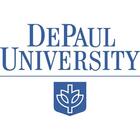
DePaul University
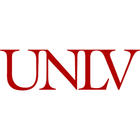
University of Nevada, Las Vegas
THE World Ranking: 601
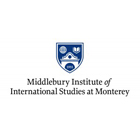
Middlebury Institute of International Studies
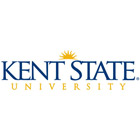
Kent State University
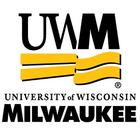
University of Wisconsin - Milwaukee
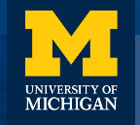
University of Michigan - Ann Arbor
THE World Ranking: 23
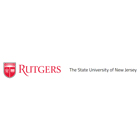
Rutgers, The State University of New Jersey, New Brunswick/Piscataway
THE World Ranking: 201
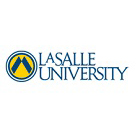
La Salle University
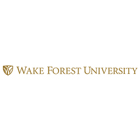
Wake Forest University
THE World Ranking: 401
- Arizona (inc. Phoenix)
- Arkansas (inc. Little Rock)
- California (inc. Sacramento)
- Colorado (inc. Denver)
- Illinois (inc. Springfield)
- Iowa (inc. Des Moines)
- Kentucky (inc. Frankfort)
- Maryland (inc. Annapolis)
- Massachusetts (inc. Boston)
- Michigan (inc. Lansing)
- Minnesota (inc. St. Paul)
- Missouri (inc.Jefferson City)
- Nevada (inc. Carson City)
- New Jersey (inc. Trenton)
- New York (inc. Albany)
- North Carolina (inc. Raleigh)
- Ohio (inc. Columbus)
- Pennsylvania (inc. Harrisburg)
- Texas (inc. Austin)
- Wisconsin (inc. Madison)
- Study level:
- Postgraduate
- Graduate Certificates & Diplomas
- Masters Degrees
- Doctoral Degrees
- Study mode:
- Online/Distance
Filter your results
Tell us about you.
- Nationality Select country Select country
- My current qualification is from Select country Yes No Select country Select country
- Current qualification {0} is not applicable for the study level you selected below. Qualification Qualification
- Grade type (only one grade type for your qualification) Grade type Grade type
- My score (current or expected) Please select Please select Please select Please select Please select Please select
Tell us your preferences
- Subject Translation
- Qualification Postgraduate
- Destination USA
- Study options
- Annual tuition fees
Subject areas
Qualification, destination.

Master's in Translation and Interpreting Online
100% online study.
Want to turn your language skills into a translation or interpreting career? Whether you are interested in business translation, medical translation, conference interpreting, legal translation, literary translation, transcreation, or localization, the online Master's (MS) in Translation & Interpreting offered by the NYU SPS Center for Publishing & Applied Liberal Arts prepares you for a wide range of translation and interpreting careers, from localization to project management. This 36-credit, fully online program provides students with the best of both worlds—the convenience and flexibility of learning on your own terms and at your own pace, while benefiting from a rigorous curriculum, a variety of elective courses tailored to your interests, and the prestige of earning your master’s degree at NYU , one of the world's most respected universities.

Degree Advantages
- Fully online format with opportunities to engage with faculty members and students at regular intervals
- Curricu lum that allows students to study translation from any language into English
- Covers both written translation and the best practices of oral interpreting
- Elective courses that customize your learning experience
- Prepares students for the American Translators Association (ATA) Certification Exam, a language industry-recognized credential
- Taught by faculty members who are professional experts in their fields
- Full-and part-time study options
VIEW FULL CURRICULUM AND DEGREE REQUIREMENTS >
Explore graduate opportunities at nyu sps.
Join an upcoming online session to learn more about our graduate degree program in Translation and Interpreting. As an attendee of an Explore Graduate Opportunities at NYU SPS session, you will meet members of our team and have the opportunity to ask questions about the online program, admission requirements, and application process.
6:00 PM until 7:30 PM EDT
Who Should Consider Earning the MS in Translation & Interpreting?
Whether you are interested in pursuing a full-time position with a language services provider or prefer the flexibility of a freelance translation and interpreting career, the MS in Translation & Interpreting will prepare you for a professional path in the translation industry, which is growing faster than many other fields. The online program provides students with the professional growth and cutting-edge translation and interpreting skills to work anywhere in the world. In a 2022 survey, we found that 100% of recent MS in Translation & Interpreting graduates reported being employed within six months of graduation.
Become a Language Professional
Faculty members who teach in the online MS in Translation & Interpreting program share their deep expertise with students from around the world. The comprehensive online program focuses on the specialized skills required for translation and interpreting, while thesis advisers provide guidance to students on the subtle nuances of Spanish-to-English translation , Chinese-to-English translation , Arabic-to-English translation , and numerous other language pairs.
Choose From a Wide Range of Elective Courses in Emerging Fields
The online MS in Translation & Interpreting program affords a solid core in theory and practice, terminology, and technology. In addition, the degree's elective courses provide students with the knowledge and tools to succeed in fields such as legal translation , literary translation , transcreation , website localization , machine translation , and financial translation and will provide tremendous flexibility in your translating and interpreting career.
Build a Portfolio of Projects That Demonstrates Your Translation and Interpretation Skills
The online MS in Translation & Interpreting is designed to ensure that you walk away with a comprehensive portfolio of translation projects that truly demonstrate your translation and interpreting skills to prospective employers, organizations, and clients. Your portfolio can be tailored to the area of specialization you choose—from medical translation , literary translation , and legal translation , to transcreation , financial translation , and localization of software and websites .
FREQUENTLY ASKED QUESTIONS
What is a master's degree in translation and interpreting.
A master's degree in translation and interpreting is a graduate-level academic program designed to provide students and working professionals with advanced training in the fields of translation and interpreting. The New York University SPS MS in Translation and Interpreting online program is intended for students with proficiency in at least one language in addition to English and who seek to develop specialized skill sets in translating written texts and interpreting spoken communication.
What can you do with a Master’s (MS) in Translation and Interpreting?
Once you've completed your MS in Translation & Interpreting, available jobs range from translation and localization to publishing and project management. Whether in law, finance, advertising, or intergovernmental agencies, the great need for translators is creating rewarding freelance and employment opportunities.
What languages are in high demand for translators?
Translators are in high demand across many languages given the global market for these professionals. The MS in Translation & Interpreting is open to applicants who wish to study translation from any language into English. The curriculum features terminology, research, revision, technology, and professionalization skills along with language-specific guidance.

Do translators need a Master’s degree?
Having a Master’s degree sets you apart and shortens the path to success in this rewarding career. Almost half of translators and interpreters surveyed by the American Translators Association hold master’s degrees. The MS in Translation & Interpreting program prepares its students for dynamic careers as highly skilled translators and language specialists.
How can I prepare for the ATA Certification Exam through this program?
Many of our students take the American Translators Association (ATA) Certification Exam , which is a 3-hour test-based credential and an advantageous addition to your resume. By the end of the MS in Translation & Interpreting program, graduates translate at a level that meets the ILR skill descriptions for professional performance.
What is the difference between translation and interpreting?
Translators work with written texts, while interpreters work with the spoken word. Students benefit from exposure to both practices, even though most professionals specialize in either translation or interpreting. In this program, students will master advanced strategies for translating complex documents and gain a foundation in the principles of interpreting.
How can I finance my degree? Are financial aid or scholarships available?
Options for financing the MS in Translation & Interpreting degree include Federal Student Aid (FAFSA), scholarships, private loan options, employer or veterans’ benefits, and New York University payment plans. We encourage students to explore the NYU SPS resources page on Graduate Financial Aid to find more information on financial aid and scholarships.
How does the MS in Translation and Interpreting at NYU differ from other programs?
The Master of Science in Translation and Interpreting at New York University was the first program to offer students a fully online degree in this discipline and has done so since 2012. We are also the only program to offer translation from any source language into English. Students will receive language-specific guidance in independent studies and the thesis project. We also designed the curriculum with the understanding that many translators and interpreters work in multiple language pairs. Our focus is on core skills in research, terminology, revision, technology, and professionalization to support translation from any language, along with the widest range of electives available.
What are the admission requirements for this online MS in Translation and Interpreting?
The NYU SPS Admissions team carefully weighs each component of your application during the admissions review process to evaluate your ability to benefit from and contribute to the dynamic learning environment and the challenging curriculum that the NYU School of Professional Studies offers. Visit the NYU SPS Graduate Application Requirements and Deadlines page for additional information about our admission requirements. Applicants to the MS in Translation and Interpreting should also take the ACTFL Proficiency Test .
How long does it take to complete the online MS in Translation and Interpreting?
The NYU SPS MS in Translation and Interpreting program usually takes three semesters to complete as a full-time student and two to four years to complete as a part-time student.
Is it worth doing a Master of Science in Translation and Interpreting?
A Master’s degree is the gold standard credential in the language professions. The decision to pursue a Master of Science in Translation and Interpreting depends on your career goals and interests. Meet with professionals in the field and current students to gather insights and learn how completing an online graduate program in translation and interpreting can help you fulfill your aspirations.
Can translators make a lot of money?
Translators' wages vary depending on several factors such as the specialization in which they work and their experience, work structure (freelance vs. salaried), and clientele. For example, salaried professionals working in advertising or computer systems design make $91,390 to $106,540 per year on average, while those working in elementary schools or local government make $56,490 to $63,680 per year on average according to the Bureau of Labor Statistics . Freelance language professionals can make into the six figures, according to the American Translators Association .
What language is most in demand for translation?
The demand for translation services can vary depending on factors such as geographic location, industries, and global economic trends. However, certain languages are consistently in high demand due to their widespread use in international business, diplomacy, and cultural exchange. Chinese, Spanish, and Arabic are examples of in-demand languages for translation services. Translators in other languages can specialize and succeed as well. The NYU SPS program has trained students in Arabic, Chinese, Farsi, French, Greek, Italian, Japanese, Portuguese, Spanish, and many others, including languages of lesser diffusion.
Will artificial intelligence replace translators?
While AI technologies have made significant advancements in the digital age, they are not likely to replace human translators any time soon. This is because, unlike a professional human translator, AI struggles with nuance, cultural understanding, humor, and creative expression. The future of translation and the language services industry is likely a collaborative one, with human translators and AI working together to provide accurately translated content. The NYU MS in Translation & Interpreting program has integrated AI throughout the curriculum, including in particular the Core courses in Translation Technologies and The Language Professions and electives from Transcreation and Marketing Translation to Patent Translation to Post-Editing Machine Translation. The teaching of up-to-date technologies, including AI, is a key component of our program’s learning outcomes. We also hold events about AI in the Professions .
Is being a translator a stressful job?
Our faculty and students report that translation careers are joyful, creative, and rewarding. Being a translator can be challenging, and the level of stress varies like any job, but translation is ultimately a fulfilling career that leverages your multilingual skills. Since many translators and interpreters are self-employed, you will also have options to take control of your career. The NYU Master’s program in Translation & Interpreting helps students track toward freelance or full-time employment based on your personal situation and preferences.
How do I start a career in translation?
To start a career in translation, it's crucial to be fluent in at least two languages. From there, you can obtain a formal education to build your foundation and establish yourself as a professional in the field.
How many years does it take to become a translator?
The time it takes to become a translator can vary. Many translators start their profession by earning a bachelor's degree in any field and then pursue a Master’s degree in Translation & Interpreting to dive into a specialization of their interest.
Program Affiliations

We would like to thank Phrase for granting us free access to their platform through the Phrase Academic Edition .
Connect With Us
Your request has been submitted, department highlights, translation and interpreting faculty member alejandra oliva publishes rivermouth: a chronicle of language, faith, and migration, pala academic director of continuing education jenny mcphee’s translation of elsa morante’s novel ‘lies and sorcery’ wins accolades, scribe at spirit week: the translated and queer/banned book expo, pala student bethany fisher pursues nyu sps master’s degree to help give a voice to marshallese people, ms in translation & interpreting student justin sergi publishes translation in asymptote, navigating peacekeeping and climate change through translation, translators in the digital age: interview with faculty member elizabeth lowe, pala alum spotlight: mariam moustafa, ms in translation & interpreting, elizabeth hsu, ms in translation and interpreting graduate, selected as 2023 flag bearer, ai in the professions: professional writing, translation, and the new face of content creation, terminology: the border wall, entitlements, abortion, translation and localization project management, pala faculty spotlight: barbara inge karsch, ms in translation & interpreting, ms in translation & interpreting student judith santos awarded the malkemes scholarship for fall 2022, take the next step.
Learn more about your program of interest and apply.
Center for Clinical and Translational Science (CCaTS)
Ph.d. program.
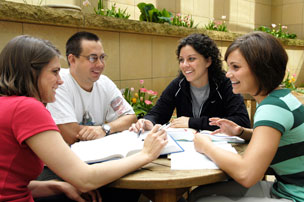
In support of its mission to develop independent clinical and translational science researchers, the Center for Clinical and Translational Science (CCaTS) collaborates with Mayo Clinic Graduate School of Biomedical Sciences in Rochester, Minnesota, to offer a Ph.D. track in clinical and translational science.
While Mayo Clinic Graduate School of Biomedical Sciences administers the overall Ph.D. Program, CCaTS delivers the clinical and translational science track's course work and oversees the mentored research experience, a cornerstone of the program. Mentors are Mayo Clinic faculty from a wide range of disciplines.
Read more about Ph.D. Program admissions or see profiles of current Ph.D. students in the clinical and translational science track.
Our Education Contacts page contains a listing of team members who can assist you with questions.
Mayo Clinic Graduate School of Biomedical Sciences Ph.D. Program
- 200 First St. SW Rochester, MN 55905
- Phone: 507-538-1160
- Email: [email protected]
More about research at Mayo Clinic
- Research Faculty
- Laboratories
- Core Facilities
- Centers & Programs
- Departments & Divisions
- Clinical Trials
- Institutional Review Board
- Postdoctoral Fellowships
- Training Grant Programs
- Publications
Mayo Clinic Footer
- Request Appointment
- About Mayo Clinic
- About This Site
Legal Conditions and Terms
- Terms and Conditions
- Privacy Policy
- Notice of Privacy Practices
- Notice of Nondiscrimination
- Manage Cookies
Advertising
Mayo Clinic is a nonprofit organization and proceeds from Web advertising help support our mission. Mayo Clinic does not endorse any of the third party products and services advertised.
- Advertising and sponsorship policy
- Advertising and sponsorship opportunities
Reprint Permissions
A single copy of these materials may be reprinted for noncommercial personal use only. "Mayo," "Mayo Clinic," "MayoClinic.org," "Mayo Clinic Healthy Living," and the triple-shield Mayo Clinic logo are trademarks of Mayo Foundation for Medical Education and Research.
Master of Arts in Translation; Translation and Interpretation; Conference Interpretation
Launch your career in the $60 billion language services industry with a master’s from one of the world’s leading graduate schools for translation and interpretation.
Our translation and interpretation master’s degrees prepare you for exciting careers as freelance or in-house language professionals at organizations like the United Nations, the U.S. State Department, the Stanford Healthcare network, and a range of NGOs and private companies around the world.
You can pursue a Master of Arts in Translation (T), a Master of Arts in Translation and Interpretation (TI), or a Master of Arts in Conference Interpretation (CI).
Find out if T, TI, or CI is right for you
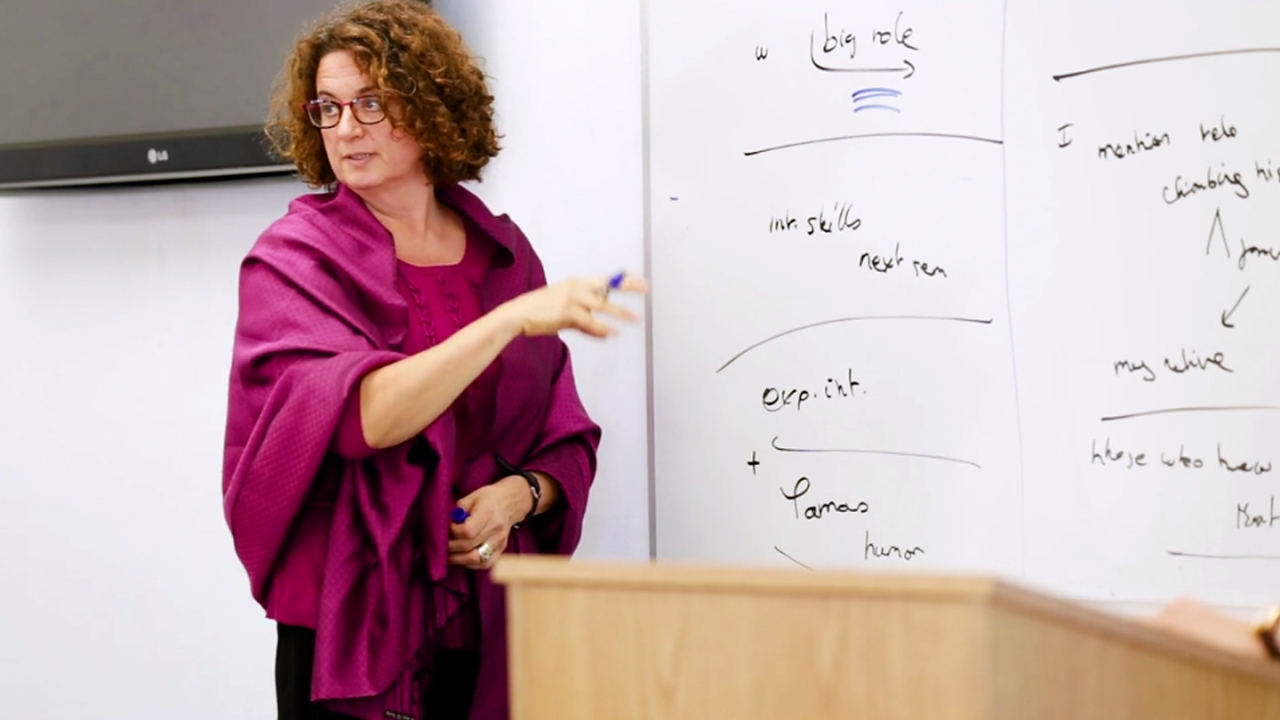
World-renowned Training for Translation and Interpretation Professionals
At the Middlebury Institute, we offer an MA in translation and and MA in translation and interpretation, and an MA in conference interpretation. There is no where else where you can really get the professional training and the sound academic environment that we provide here at the institute, and for me that was the real draw. I really loved the blend of the academics and the professional and the type of professionals that it prepares for the world out there.
I chose this program because I want to be an interpreter and this is one of the best schools in the world. Here at the institute I learned how to interpret both consecutively and simultaneously in both directions into English and into Spanish.
In all of our classes, we’re asking students to engaged in activities that they’ll be engaged in as translators, interpreters and localization specialists. Whether they’re interpreting for international visitors or international conferences, localizing materials for various agencies, or translating documents for people.
Everything that they do is tied into their education and then of course provides them with those great experiences to put on their resume that they’ve done while they’re here with us.
My favorite class in the program is the practicum, interpretation practicum class, because that’s when we actually get to do real life assignments. We’re in the actual booth wearing headsets, speaking into the microphone, and sometimes people are actually relying on our interpretation to listen to the event.
I don’t think there are many places in the world where you can go and really find so many people, and pretty much everyone on campus has lived, worked and traveled overseas. And the multitude of languages spoken here is really impressive as well. And I think that makes for a very vibrant campus community. Everyone really has done fascinating things.
Knowing a language is also knowing about the culture. So it’s really helpful when you can actually interact with people coming from another country and to get to know them.
From the day students set foot on this campus, the faculty really treats them as colleagues. The programs are relatively short, and in two years, in fact if not sooner, our students and our colleagues are working together out there in the community. So I think that provides for really unique mentoring relationships.
The faculty here at the institute is very helpful and very accessible. They are working in the field, so they are translators and interpreters. So whenever we have a question related to the profession, they have the answer, and they are willing to help us become one of them, one of their colleagues.
This experience has been really life-changing to me because I was doing something else with my life before and now coming here I’m more sure than ever that I really want to do this for the rest of my life.
If you are looking to be a translator and interpreter, and be ready to start working once you graduate, this is the place where you wanna be.
Launch Your Career
Career and academic advising.
Your career and academic advising are coordinated, ensuring you align your coursework with your career goals. Our experienced advisors will guide you from course registration to preparing for interviews, negotiating your employment offers, and managing your career.
Internships
Students often pursue internships during the summer between their first and second years.
Language Services Career Fair
Our annual language services career fair , hosted at our Monterey, California campus, attracts dozens of employers—like the U.S. Department of State Office of Language Services and Deluxe Media Inc.—all seeking to hire our students for internships and full-time positions.
Alumni Network
Our large and influential alumni network is eager to help you take the next step in your career. They are thriving in careers around the world, meeting the growing and global demand for multilingual fluency in courts, hospitals, technology, and diplomacy. Explore careers in translation and interpretation .
Our career-oriented course work prepares you for lifelong skill-building and professional growth. You will develop key skills both in and out of your A (native) and B (near-native) languages as you work with real-world texts, high-profile events, and live simulations in a variety of fields. You will also learn to use the latest translation and interpretation technology, software, and tools.
Engage in authentic translation and interpretation experiences through your practicum. A thesis option is available for those interested in pursuing an extended translation project.
See the curriculum for more details.
Choose Your Degree
Although you must select a specific degree when you apply, you will be exposed to many aspects of both translation and interpretation during your first year. After these two semesters, you, your faculty, and your academic advisor will know more about your strengths and interests, and you can finalize your degree choice and focus your studies. Explore your degree options .
Customize Your Degree
The flexibility in our curriculum gives you opportunities to customize your degree through your languages of study, content area electives, a professional practicum, internships, intercultural competence courses, joint degrees, optional specializations, and advanced entry.
Check out the program details for your options.
Language Pairs
Students entering any of the programs choose to focus on one (or two) of the following languages, all paired with English:
Joint Master’s Degrees
Earn two master’s degrees in three years by combining T, TI, or CI with the STEM-designated MA in Translation and Localization Management. Learn more about the joint master’s degrees .
Advanced Entry: Two-Semester Program
You may be eligible to complete the degree in only two semesters depending on your academic and/or professional experience. Learn more about advanced entry requirements .
Faculty: Professors and Practitioners
Our faculty combine academic expertise with years of professional experience as translators and interpreters performing high profile work at intergovernmental organizations such as the United Nations, at the World Economic Forum, at the Olympics, for the White House, in the U.S. State Department, in the German Parliament, in literature and research, in nonprofit organizations, and in private businesses.
Together with career advisors, faculty mentor students to ensure that they receive the academic and professional experience that will help them realize their career goals. Meet your faculty .
Financing Your Education
We offer a variety of resources to make your program more affordable including merit, need-based, partner, and external scholarships for both U.S. and international students. Your personal enrollment advisor is also available to help you think through financing this important investment in your career development.
Learn more about scholarships , financial aid , and your tuition costs .
How to Apply
We take a holistic approach when considering your application, looking at your academic background, international exposure, professional experience, and career goals. We welcome applicants with or without work experience, and our program has numerous opportunities for you to gain professional experience before you graduate. This approach aligns with the Institute’s core values of diversity, equity, and inclusion .
We do not require GRE or GMAT scores for our master’s programs but competitive scores may strengthen your application and positively influence scholarship decisions. You will submit a Language and Skills Test (LST) to demonstrate proficiency in each of your languages of study.
Learn how to apply .
Featured News
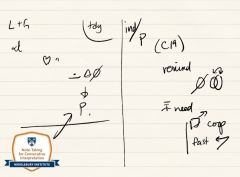
News Stories
New Short Course on Note-Taking for Consecutive Interpreting
February 16, 2024 | by Sierra Abukins
The self-paced online course is taught by Professor Laura Burian and helps you build the foundation to build a strong note-taking practice over time.
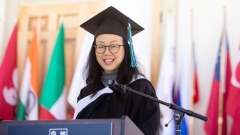
Bridging Language Gaps: A Conversation with the Cofounder of Translators for Elders
February 15, 2024 | by Minting Lu
Barbara Zhang shares insights on how an organization that started in a crowdsourcing localization class at Middlebury Institute grew into a nonprofit that helps break down language barriers for seniors.

For First Time, Fall Forum Delivers World Cuisine Alongside Interpretation Practice
February 13, 2024 | by Charles Cai and Xiaohui Hu
Second-year interpretation students organized and led the annual Fall Forum, which was not only centered on a food theme this year, but featured seven local restaurants serving different cuisines.
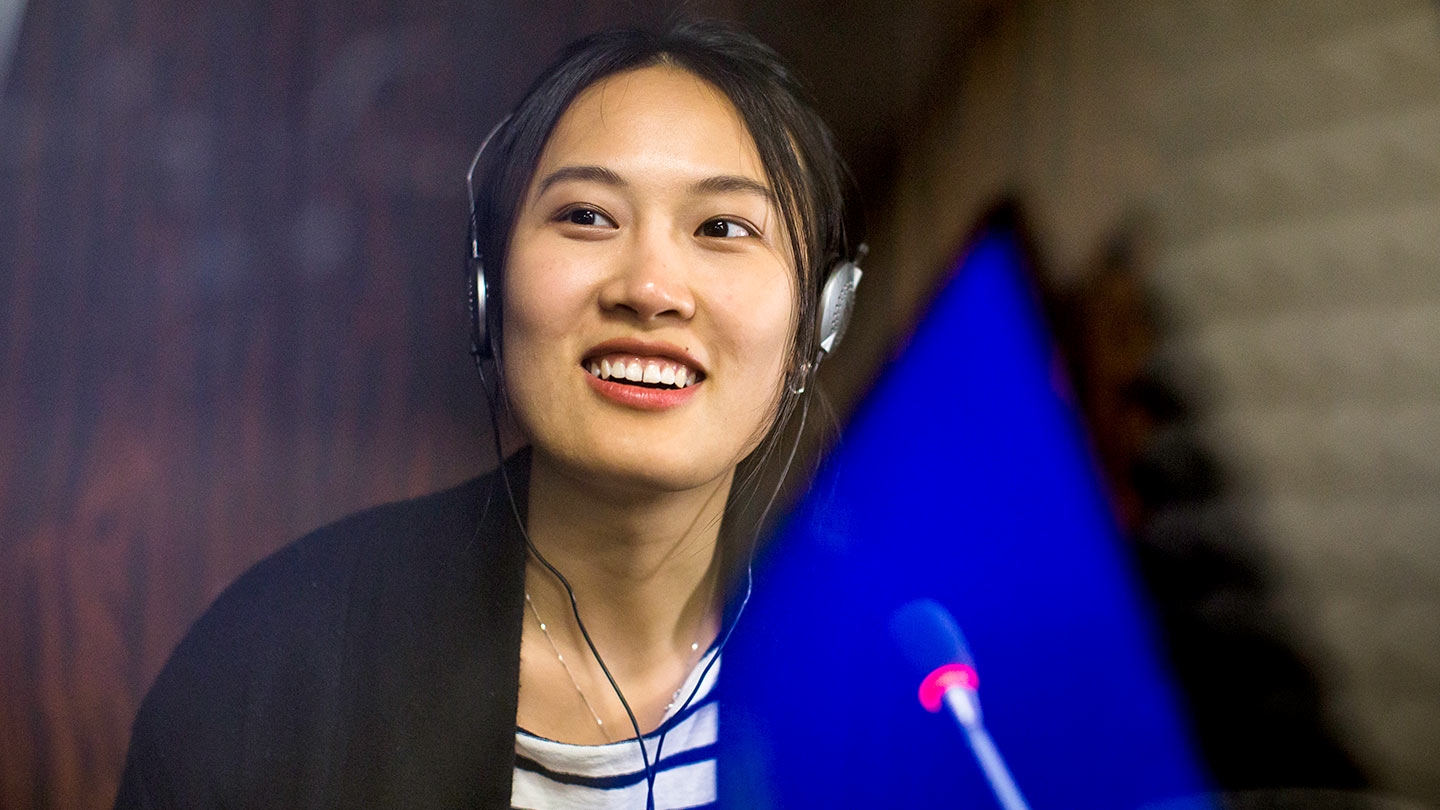
Our graduates work globally as freelance consultants or in-house language professionals for private businesses, governments, and nongovernmental organizations.
Career Outcomes
How will you change the world?
What makes us different?
Next Application Deadline: April 1
- Request Info
- Check Status
Translational Science PhD
Doctoral Program
This PhD program creates scientists who advance knowledge toward the goal of translating basic biomedical scientific discoveries into strategies that will improve healthcare delivery, patient outcomes, and community health.
Start Your Bold Future
By submitting this form, I agree that UTSA may contact me by email, voice, pre-recorded message and/or text message using automated technology.
Please enable javascript in your browser
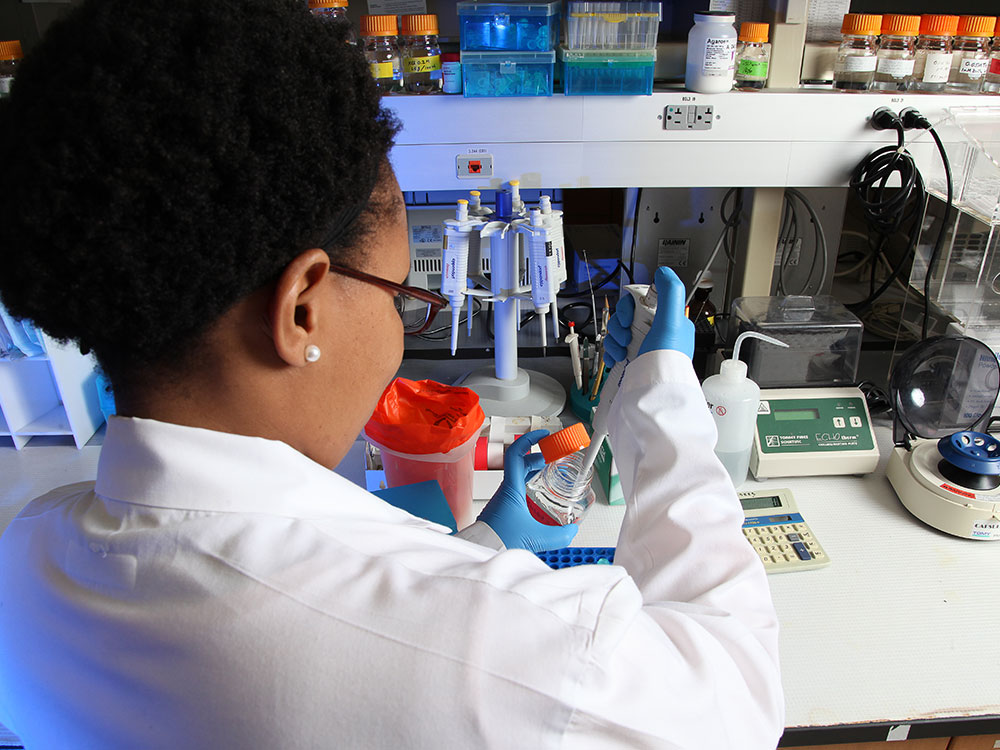
Joint Program
The Translational Science program is a joint effort between UT Health San Antonio, UT San Antonio, UT Austin, and UT Health Houston School of Public Health. This collaboration of four universities to offer a single joint doctoral degree is unique in the UT System. The goal is to provide an in-depth, rigorous, and individualized multi-disciplinary and multi-institutional research education and training program that will prepare research scientists to integrate information from multiple domains and conduct independent and team-oriented research to improve human and global health.
Why Pursue a PhD in Translational Science?
For many years, extensive national resources have been devoted to basic biomedical (bench) and clinical (human subject) research. However, significant barriers continue to exist in moving knowledge bi-directionally between basic research, clinical research, and applications to improve health outcomes in individuals and the community. These barriers make it difficult to efficiently and effectively translate new knowledge into improved patient care.
To remedy these problems, Translational Science is emerging as an academic and scientific discipline. Translational Science (TS) is a scientific discipline that investigates methods to move discovery more efficiently and effectively into application. TS investigators must respond, interact, facilitate change, and conduct research within and among varied organizational behaviors, structures, and cultures. TS conducts rigorous studies that close the knowledge gaps between different levels of the research process – the basic science laboratory, clinical research discoveries, and application of these research findings toward disease prevention and management, and strategies to improve human, community, and global health.
Translational research is often defined at two levels: (T1) Applying and advancing research-generated discoveries in the laboratory to research trials in human subjects; and (T2) Research that promotes the adoption of best practices in clinical practice settings and the community and policy development.
- Admission Requirements
Application Deadlines
Funding opportunities, admission & application requirements.
Applications are submitted through the UTSA Graduate Application . Please upload all required documents (listed below) on your UTSA Graduate Application. It is the applicant’s responsibility to ensure completion and submission of the application, a nonrefundable application fee, and all required supporting documents are on file with UTSA by the appropriate application deadline.
Applicants are encouraged to have their admission file completed as early as possible. All applications, required documents and letters of recommendation, if applicable, must be submitted by 5:00 PM U.S. Central Time on the day of the deadline. Deadlines are subject to change.
Full-time students accepted for the program are eligible to apply for financial support in the form of competitive teaching assistantships, research assistantships, or research fellowships.
Earning a Master's Degree
While in a doctoral program, a student may earn a master’s degree provided the following conditions are satisfied:
- A student must be admitted to candidacy.
- A student is eligible to receive a master’s degree upon completion of University-wide requirements and any additional degree requirements specific to the program.
- The Doctoral Studies Committee, Department Chair, and the Graduate Associate Dean of the College must recommend students for the degree.
- The student must apply for graduation by the published deadline the semester prior to awarding the doctoral degree.
- All required coursework in the doctoral program at the time of admission to candidacy must have been taken within the previous six years.
- If the master’s degree requires a thesis, the degree cannot be awarded on the basis of the doctoral qualifying examination.
- Students will not be approved for an additional master’s degree in the same field in which an individual has previously received a master’s degree.
Course Offerings & Admissions
The Translational Science PhD program utilizes a single application source through the UT Health San Antonio. Click below to learn more.
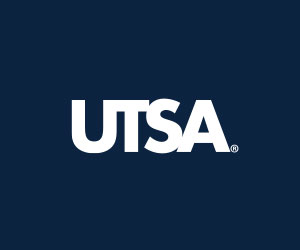
UTSA Representative
Reyna Tostado
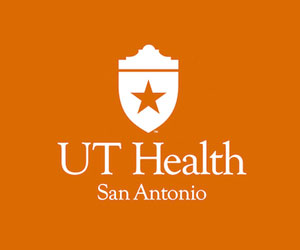
UTHSCSA Representative
Giovanna D'Ambra
210-567-8094
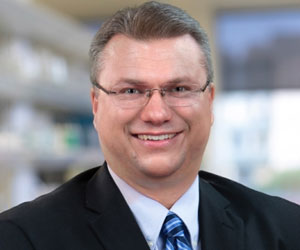
Graduate Advisor of Record (UTHSCSA)
Christopher R. Frei, PharmD, MSc
210-567-8371
Coronavirus (COVID-19): Latest Updates | Visitation Policies Visitation Policies Visitation Policies Visitation Policies Visitation Policies | COVID-19 Testing | Vaccine Information Vaccine Information Vaccine Information
Translational Biomedical Science

The application for fall 2024 is closed.
Translational Biomedical Science PhD Program

Dr. Juilee Thakar, Ph.D. Program Director
Edwin van Wijngaarden, Ph.D. Associate Program Director
What makes our program different
Our program has been thoughtfully designed to provide you with the most effective learning environment. Whether you want to work on new vaccines, develop smartphone apps for mobile health, or engage international communities, you will learn the skills you need to make an impact.
- We are global. The program is embedded with a range of global and community health opportunities that help bridge basic and population sciences that serve real communities and their needs, including local and global Deaf communities.
- A true multidisciplinary program. Our students work with world-renowned scientists from a variety of specialties and highly diverse backgrounds.
- Tailored to your needs. Together with program co-directors, you design your program of study—both didactic coursework and research—to fit your research interests and career goals.
- Mentor approach. To provide a broader perspective on how your research can be applied to the world, our program uses a dual mentoring model. Select a primary and co-mentor, one each with expertise in basic or population/clinical/translational science from the School of Medicine or Arts, Sciences and Engineering.
- Survival skills for research. You will learn what it takes to survive and thrive in an academic environment, such as how to write grants, give presentations, how to write and review manuscripts, and how to find postdocs and jobs after graduation through career development programs offered in the Center for Professional Development and URBEST program .
- We are diverse. In 2017-2018 academic year, over 56% of the TBS students represent diversity in culture, race and ethnicity, including >8% of our students identifying as culturally Deaf with ASL as their native language. We support and advocate for Deaf and Hard-of-Hearing trainees in the TBS PhD program, as well as in other PhD programs in the School of Medicine & Dentistry at the UR to foster an all-inclusive training environment.
Do you want to translate basic science and clinical observations into ideas that change lives? The PhD Program in Translational Biomedical Sciences will give you the education, skills and confidence you need.
To learn more, fill out our Inquiry Form today.
Of trainees are from communities underrepresented in science
Average time to graduation
External funding secured by TBS trainees in the past five years
Hear From Students
What Sets Us Apart
About the program.
An overview of the program to give insight into how TBS works at the University of Rochester.
Find out more information regarding your potential mentors in the program.
Learn more about your potential peers by looking at their research interests on our students page.
General Focus
The PhD Program in Translational Biomedical Science is focused on creating a new kind of investigator—one who has a much broader view. A flexible curriculum in basic, translational and population health sciences and a dual mentoring approach for dissertation research make it a uniquely powerful way to prepare the research leaders of tomorrow.
View the TBS Program of Study Webpage
This program was selected for funding by the Burroughs Wellcome Fund and is co-directed by Nancy M. Bennett, M.D. , Director of the Center for Community Health and Co-Director of the University of Rochester Clinical & Translational Science Institute (UR CTSI), and Stephen Dewhurst, Ph.D. , Chair of Microbiology and Immunology.
View the IIMP Program of Study Webpage
Graduate Student Perspective
"Coming to URMC to work for a doctorate degree has been a dream come true. My best decision! Since I met past students from my current program, I was sure that URMC had it all. URMC offers unique and wonderful opportunities to develop both professionally and personally. As a student, you have access to a variety of resources to support you during your training. URMC represents a robust environment of research quality that support researchers and trainees to increase research productivity."
Zahíra Quiñones Tavárez
Third-year PhD Student in the Translational Biomedical Science Program at University of Rochester
Program Coordinator
Kimberly Marino Research Education Program Assistant
- REQUEST INFO
PhD in Translational Health Sciences

Become a change agent in healthcare
Hybrid
54-60 Months*
More than ever before, today’s health care leaders are faced with complex challenges to translating evidence to practice that require navigating geographical, organizational, economic, cultural, and professional barriers. These challenges are formidable and multifaceted, so the solutions must be robust, comprehensive, and draw on cross-disciplinary knowledge representative of multiple and novel perspectives. Effective leaders who can close the gap between evidence generation and implementation are needed in every aspect of the healthcare arena, including research laboratories, clinics, community settings, classrooms, boardrooms, and both government and non-government organizations.
Conducting research in our challenging health care environment requires a basis in translational research, a cross cutting approach that connects clinical research to global population health impact. The PhD in Translational Health Sciences program trains students in implementation science, so they can investigate the processes and strategies for disseminating of evidence-based health care practices. The program also trains students to collaborate in research as part of multi-disciplinary teams, preparing them for real-world research challenges.
* The total number of credits and duration of the program depend on the number of transferred credits
* Indicates required field
By providing your phone number on this request information form, you have authorized the George Washington University, and its representatives, to send you SMS/Text messages in conjunction with the services you have requested. Message and data rates may apply.
If you no longer wish to receive SMS/Text communications from GW SMHS, you will have the option to opt-out.
By submitting this form, you confirm you have read the Privacy Notice .
Accreditation and Rankings
- GW is accredited by the Middle States Commission on Higher Education
- #62 Best National University*
- #13 Best Online Bachelor's Programs*
- #7 for Best Online Programs for Veterans*
* The U.S. News & World Report – 2024 Rankings

Tuition Details
For tuition information for the PhD program in Translational Health Sciences, please visit our program-specific tuition page. Learn about our scholarship/award opportunities.
TUITION INFORMATION
You can translate knowledge to improved health as:
A translational health sciences researcher.
Graduates of the PhD in Translational Health Sciences synthesize and generate knowledge about the myriad processes shaping how knowledge is translated. Translational activities are developed and implemented in specific social, political, and organizational contexts that shape their outcomes. The PhD in Translational Health Sciences program draws on Implementation Science, which investigates the processes and strategies influencing the distribution of evidence-based health care from the clinical research stage into effective treatment options.
A Health Care Practice Leader
Conducting research in our challenging health care environment requires a basis in translational research, a crosscutting approach that connects clinical research to global population health impact. Key health problems are conceptualized broadly in terms of transitions between, clinical insights, implications for practice, implications for population health, and improved global health. Generating knowledge within a translational framework results in a synthesis of information drawn from many disciplines, resulting in broad, practical solutions to health problems.

Who Benefits from the PhD in Translational Health Sciences program?
Graduates of the PhD in Translational Health Sciences will be prepared to create, translate, disseminate and integrate new knowledge across disciplines to improve health care practice, inform future research, and shape policies. Graduates will be uniquely qualified to:
- Serve in leadership positions in national organizations, government agencies, and health-related industries
- Conduct health-related research and disseminate innovations in health care as university faculty in medicine, nursing and health-related professions
GW is a premier research institution that builds upon existing educational programs in clinical and translational research. As a leader in team-based and on-demand learning formats, graduates will gain the experience necessary to navigate and manage diverse stakeholder networks.
GW’s PhD in Translational Health Sciences program incorporates a low residency format, combining online coursework with on-campus facilitated learning. Two weekends each semester, students gather at the Virginia Science and Technology Campus in Virginia to engage in active learning with colleagues, faculty, advisors, mentors, and content experts.
You can discover more about our world class faculty and their research on our Health Sciences Research pages . You can also find out more about faculty research in the School of Medicine and Health Science using the Faculty Research Database .
The low residency approach results in a dynamic, self-directed, yet facilitated media for self-disciplined students to pursue professional advancement with flexibility and convenience. Between these weekends, students prepare for, reflect on, and apply learning using a web-based learning system.
What Will I Learn?
The GW PhD in Translational Health Sciences program prepares candidates with the knowledge and skills needed to study, facilitate, and lead innovation in health care. Throughout the program, graduate's will enhance their capacity to disseminate evidence-based innovation in health care, and empirically contribute to effective and novel health care processes, procedures, and systems.
Graduates of the GW PhD in Translational Health Sciences program will:
- Integrate, apply and disseminate findings from basic science, applied clinical studies, and policy analysis
- Serve as an intermediary to stakeholder involvement and information exchange - by understanding different interfacing frames of thought and cultures, complex problem solving, and resource management
- Foster mutual engagement and utilize the goals of translational research among diverse stakeholders
- Study implementation processes and outcomes on several interrelated levels, including individual, organizational, and systems
Low Residency Education
GW’s PhD in Translational Health Sciences program incorporates a low residency format, combining online coursework with on-campus facilitated learning. Two weekends each semester, students gather at the Virginia Science and Technology Campus in Virginia to engage in active learning with colleagues, faculty, advisors, mentors, and content experts. Between these weekends, students prepare for, reflect on, and apply learning using a web-based learning system. The low residency approach results in a dynamic, self-directed, yet facilitated media for self-disciplined students to pursue professional advancement with flexibility and convenience.
Cohort Based Program
The GW PhD in Translational Health Sciences team-based learning format utilizes a cohort structure to enhance students' knowledge of translational health sciences. Studies in higher education have shown the benefits of engaging in a cohort learning community. Cohort programs are more likely to be student centered, build strong group bonds, and enhance professional networks.
Meet the Program Director
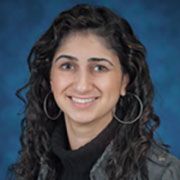
GW’s experienced faculty provide you with the rich, practical knowledge and support needed for you to succeed in the program and in your career.
Samar Nasser, PhD, MPH, PA-C
Dr. Nasser is an associate professor in the Department of Clinical Research and Leadership at The George Washington University. For about 10 years, Dr. Nasser practiced as a physician assistant (PA) in the Hypertension and Vascular Disease Clinic, and assistant medical director of the Recruitment and Clinical Measures Core on a National Institutes of Health Center Grant in Detroit, MI.
During her tenure as a PA, she cared for patients in the out-patient and in-patient settings, as well as those participants in several clinical research trials. While functioning as a PA, she attended the University of Michigan, School of Public Health and obtained her Master’s of Public Health Degree with a specialization in Epidemiology. She then pursued a Doctorate of Philosophy degree in 2011 with a concentration in Physiology, as she also has a passion to teach others and a deep appreciation for how the human body maintains homeostasis and understanding human physiologic functions as they relate to preventative health measures, public health, and the translational research field.
Dr. Nasser has co-authored numerous journal articles and several book chapters focusing on cardiovascular disease/hypertension and ethnic disparities. Her expertise is focused upon evaluating the factors impacting racial disparities, specifically cardiovascular, and translating evidence-based methods to curb these effects.
Curriculum Details
54 cohort-based hours, remainder variable until graduation
The PhD in Translational Health Sciences is a cohort-based hybrid program requiring 54 credits beyond a master's degree, successful completion of two comprehensive examinations, a proposal defense, and a defended dissertation. The curriculum is low-residency, integrating didactic content delivered online with facilitated learning activities two mandatory weekends per semester at the Virginia Science and Technology (VSTC) campus in Ashburn, VA.
The PhD in Translational Health Sciences draws on multiple, cross-disciplinary bodies of knowledge, which form the framework for the coursework and dissertation. These bodies of knowledge include:
- Innovation in Practice & Research
- Translational Research
- Implementation Science
- Collaboration Science
Course Offerings
The study of translational research, implementation and dissemination science, and collaboration and team science within the context of current health legislation. Restricted to students in the PhD in translational health sciences program or with permission of the instructor.
Foundational and practical principles of collaboration and team science. Restricted to students in the doctorate in occupational therapy and the PhD in the field of translational health sciences degree programs or with instructor's permission. Credit cannot be earned for this course and HSCI 6285.
An analysis of health systems as complex adaptive systems, including barriers, facilitators, and opportunities for change and innovation. Restricted to PhD in the field of translational health sciences degree candidates; instructor's permission may be substituted.
Program theory as the basis for designing health and educational innovations that can be tested using scientific methods, replicated in practice, and used to inform policy. Restricted to students in the PhD in translational health sciences degree program in good standing or with instructor's permission. Credit cannot be earned for this course and OT 8274.
Introduction to implementation science, the study of processes affecting uptake of evidence into healthcare, with emphasis on innovation leadership for systemic change. Restricted to students in the PhD in translational health sciences degree program in good standing or with instructor's permission.
Advanced measurement and design topics needed for translational health science research. Restricted to students in the PhD in translational health sciences degree program in good standing or with the permission of the instructor.
Qualitative methods and designs applicable to translational health science research problems; qualitative epistemology, methods, data collection, and data analysis. Restricted to students in the PhD in translational health sciences degree program in good standing or with instructor's permission.
Advanced data management and analytic techniques required for testing hypotheses in translational health research. Restricted to students in the PhD in translational health sciences degree program in good standing or with the permission of the instructor. Recommended background: Completion of graduate-level courses in epidemiology and biostatistics.
Theories, frameworks and models of knowledge translation used to facilitate knowledge use and change in complex health systems. Prerequisites: students in the PhD in translational health sciences program or with the approval of the instructor.
Role of ethics theories and bioethics principles in health research. Restricted to students in the PhD in translational health sciences degree program in good standing or with instructor's permission. Credit cannot be earned for this course and MLS 6244.
The processes and methods for translating scholarly research to an interdisciplinary stakeholder group. Restricted to students in the PhD in the translational health sciences program or with the instructor's approval.
Use of mixed methods as a legitimate design tradition to address translational research questions. Restricted to students in the PhD in translational health sciences degree program in good standing or with instructor's permission.
PhD students prepare for successful completion of the proposal defense and dissertation process. Restricted to Candidates who have successfully passed comprehensive examinations.
First in a three-course series. Candidates for the PhD in translational health sciences degree begin work on their dissertation. Restricted to those who have successfully passed comprehensive examinations and defended their dissertation proposal. Prerequisites: THS 8961.
Second in a three-course series. Candidates for the PhD in translational health sciences degree continue work on their dissertation. Restricted to those who have successfully passed comprehensive examinations and defended their dissertation proposal. Prerequisites: THS 8996.
Third in a three-course series. Candidates for the PhD in translational health sciences degree continue work on their dissertation. Restricted to those who have successfully passed comprehensive examinations and defended their dissertation proposal.
The PhD in THS program is organized as three phases, pre-candidacy, candidacy, and graduation. Successful completion of all phases is required for graduation. Average time to graduation is approximately 4.5-5 years.
- Pre-candidacy – includes successfully completing coursework, comprehensive examinations, and defense of the dissertation proposal.
- Candidacy – includes successfully completing the proposed research, passing the oral dissertation defense, and receiving approval of the written dissertation.
- Graduation – includes submitting a written dissertation in the approved format to the program, depositing it at Himmelfarb Library, closing or revising study IRB status, applying for graduation, and other tasks.
Course Sequence
* Applications and all supporting materials must be submitted by the deadline above.
Application Fee
A non-refundable application fee of $80 is required. This fee is waived only for the following applicants:
- GW alumni (those holding a GW degree or graduate certificate)
- Current degree or graduate certificate candidates at GW
- Graduates of Minority Serving Institutions (MSI)
- Current McNair Program Scholars (a completed Certification of McNair Program Participation and Application Fee Waiver form must be submitted with your application)
- U.S. military personnel and veterans
General Admission Requirements
To apply for the PhD in Translational Health Sciences program (hybrid), you’ll need:
International Students
International students should check with individual programs regarding eligibility for visa sponsorship. Generally, online and hybrid programs are not eligible for student visa sponsorship from GW. This would include transfer students from any other institution with an existing visa.
Official transcripts from institutions outside the U.S. must be accompanied by an official transcript evaluation from an accredited independent evaluating agency. Please be sure you request a detailed evaluation that includes all course titles, credit hours, grades, U.S. degree equivalency, grade-point averages (GPA), and date of degree conferral. For a list of acceptable foreign credential evaluation services, please visit NACES .
Applicants who are not U.S. citizens are also required to submit official test scores for the Test of English as a Foreign Language (TOEFL) or Pearson’s Test of English (PTE) Academics or the academic International English Language Test System (IELTS). To be considered for admission, there are required scores that you will need to meet. Score requirements may differ by school and program so check the admissions requirements for your program .
Supporting Documents and Official Transcript
Documents and Official Transcripts not submitted online should be mailed to:
Mail: George Washington University ATTN: Transcript Processing Center 8300 Norman Center Dr Suite 400 Bloomington, MN 55437
Alternatively, official electronic transcripts can be sent to: [email protected]
As you explore our programs at George Washington University, our dedicated staff is here to support you. If you have any questions or want to know more, click the "Request More Information" button below, or email [email protected] .
Request More Information

- Academic Departments
- Centers, Institutes & Labs
- Faculty Directory
- Offices & Programs
- Patient Care
- Student Resources
- Faculty Resources
Can't find what you're looking for?
- Centers, Institutes & Labs
- Offices & Programs
This is a site-wide search. if you already know what you're looking for, try visiting a section of the site first to see A-Z listings.
Results for " "

- Translational Biosciences Graduate Program
Section Menu
The Translational Biosciences PhD program represents a new paradigm for graduate training in biomedical research. This program will span the entire breadth of the biomedical research spectrum, from basic science discoveries to improved clinical outcomes and population health.
Students in the program will acquire a deep knowledge base of a chosen discipline and the ability to communicate and collaborate across disciplines. Grounded in research programs supported by the NextGen Precision Health Institute and the School of Medicine, the PhD trainees will be actively contributing to the UM System-wide effort to translate groundbreaking biomedical research into life-changing reality for people in Missouri and globally. Completion of this program provides state-of-the-art research training to young biomedical scientists at the beginning of their scientific careers.
The program offers six emphasis areas:
- Biochemistry and Biophysics
- Cancer Biology
- Infection and Immunity
- Integrative Physiology
- Nutrition and Exercise Physiology
- Population and Precision Health
Plan of Study
- Molecular and Cellular Biosciences I (3 credit hours)
- Data Design and Analysis I (3 credit hours)
- Two Emphasis Area courses (2 x 3 credit hour courses)
- Rotation Research (1 credit hour per semester)
- Research Seminars (1 credit hour per semester)
- Skills for Translational Bioscientists (2 credit hours over both semesters)
- Grant Writing course (Spring Semester of Yr 2, 3 credit hours)
- Emphasis Area courses (variable, depending on research interests)
- Emphasis Area seminar (1 credit hour per semester)
- Translational Biosciences Journal Club (by cohort; 1 credit hour per semester, continued throughout remaining of PhD training)
- Comprehensive Exam (Summer Yr 2/Fall Yr 3)
- Dissertation Research (variable)
Admission Process
Admission criteria.
- Minimum GPA: 3.0
- Bachelor's degree from an accredited college or university
- Only completed applications will be considered for fall admission. Applicants are selected for admission to the program based on their potential to conduct high-quality, independent research.
- Graduate School applications open in August for fall semester of the following year. Deadline for applications is December 1.
Required Application Materials
- Completed graduate school online application
- Unofficial transcripts
- Three letters of recommendation (submitted through the graduate school application)
- Personal statement: Should be at least two paragraphs long. Include why you want to complete your PhD training in this program. Please state your goals, previous research experience, which emphasis area you are interested in and why.
- A CV highlighting any conferences, abstracts, articles, etc.
Living in Columbia
Columbia, Missouri is a lively and welcoming city, and also an oasis of education, diversity and culture in the middle of our state. Learn more about what our city has to offer.
Summer Undergraduate Research
The Translational Biomedicine Summer Research Program seeks to recruit highly motivated and creative young scientists who are interested in developing innovative solutions to difficult problems in biology and medicine. The purpose of this 9-week, full-time summer research program is to provide undergraduates with an intensive research experience that emphasizes interdisciplinary and translational approaches across the bench-to-bedside continuum. Find out more and apply at the link below.
Translational Biomedicine Summer Research Program
More Offices and Programs
- Admissions Office
- Advancement Office
- Alumni Affairs Office
- Bryant Scholars Pre Admission Program
- Continuing Medical Education and Physician Lifelong Learning
- Coulter Biomedical Accelerator Program
- Community, Professional Proficiency and Student Success (CaPPS) Office
- Faculty Affairs Office
- Fellowship Programs
- Financial Aid Office
- First Impact Program
- Gift of Body Program
- Graduate Medical Education
- Heyssel Senior Teacher Educator Partnership (STEP) Program
- Information Technology Office
- Legacy Teachers Program
- MARC/IMSD Program
- Medical Education Office
- Medzou Community Health Clinic
- Midwest Biomedical Accelerator Consortium (MBArC)
- Missouri Telehealth Network
- Office of Well-Being
- PARTNORS Program
- PHD Masters Degree Programs
- Pre-Med Outreach Program
- Research Office
- Residency Programs
- Rural Scholars Program
- Shelden Clinical Simulation Center
- ThinkFirst Missouri Program
- University Physicians
- Women in Medicine and Medical Sciences
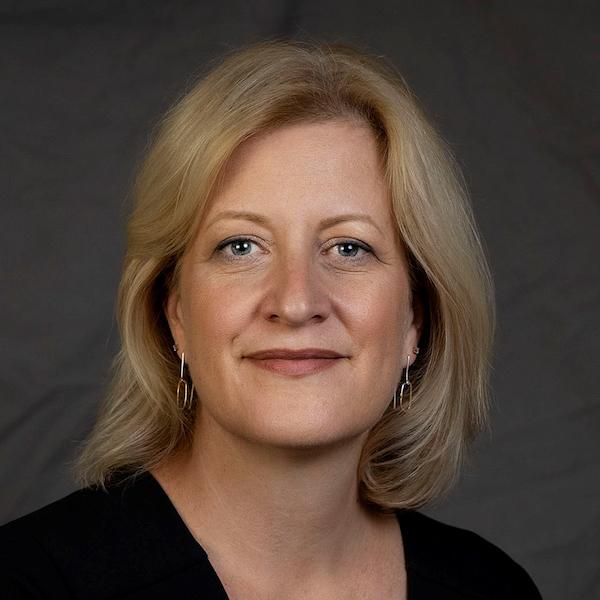
Gillian Bartlett-Esquilant, PhD
[email protected] Math Sciences Bldg 810 E Rollins Street
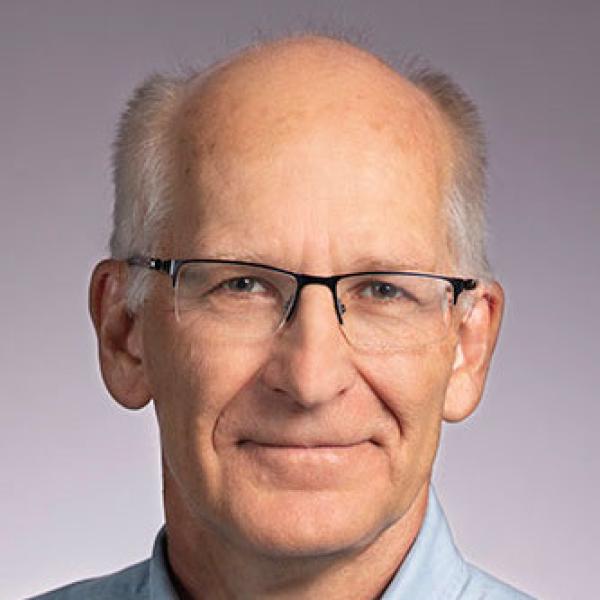
Mark Hannink, MS, PhD
[email protected] 573-882-7971 LS440E Life Sciences Center
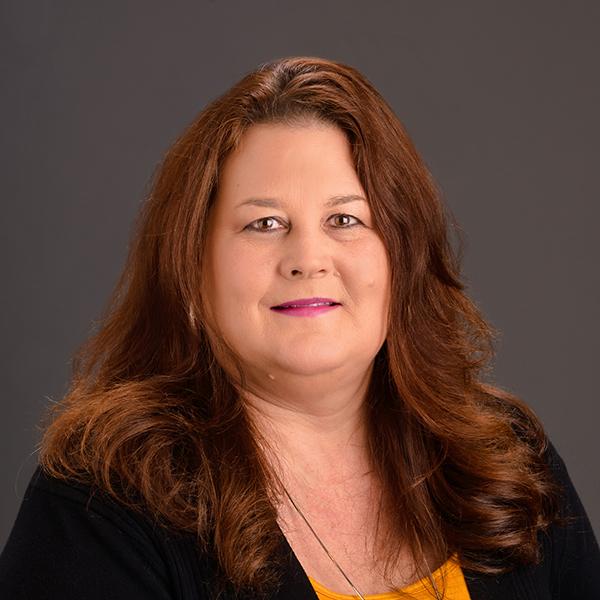
Christa Smith
[email protected] 573-882-0172
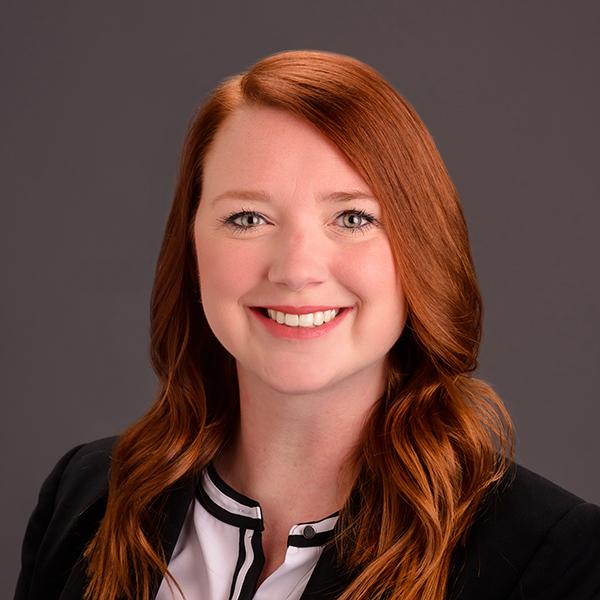
Chelsea Stone
[email protected] 573-882-0955
Happenings at MU School of Medicine
Stories that inspire.
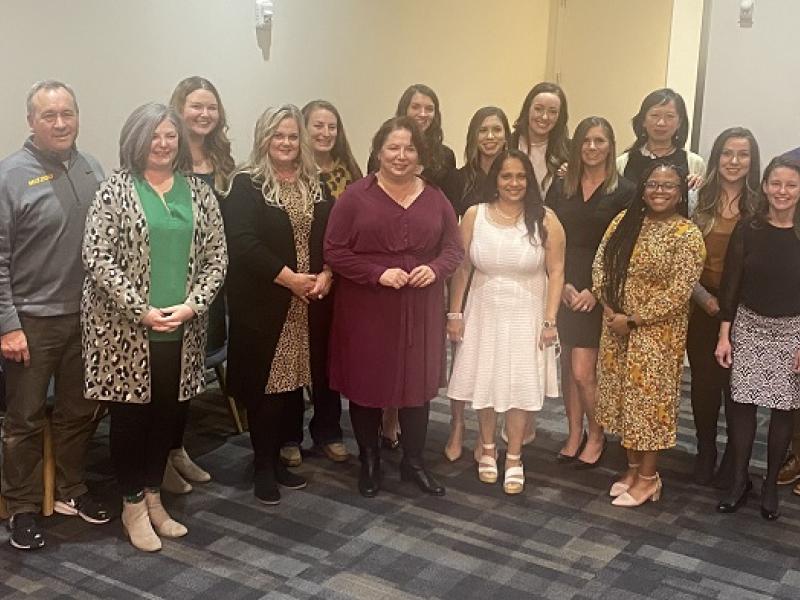
HMI Graduates 31 at December Commencement
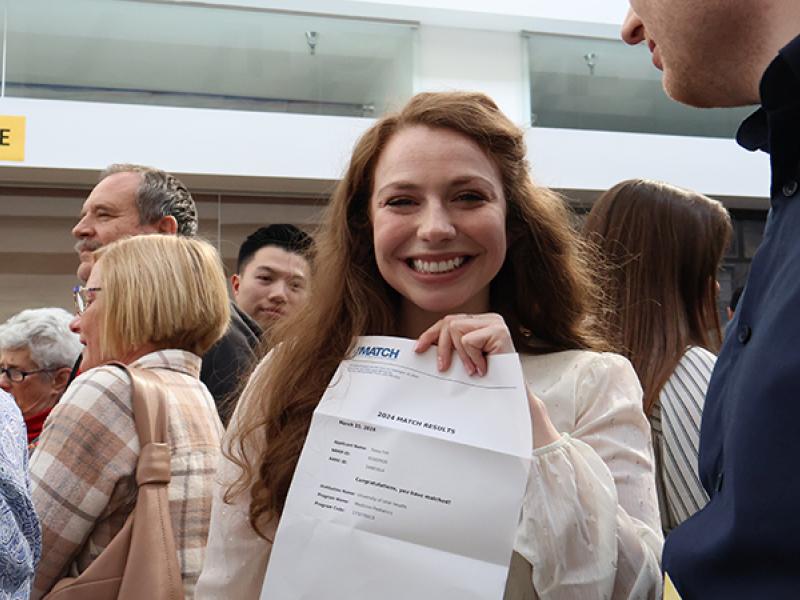
From Columbia to Springfield to Salt Lake: Tessa Foti’s journey
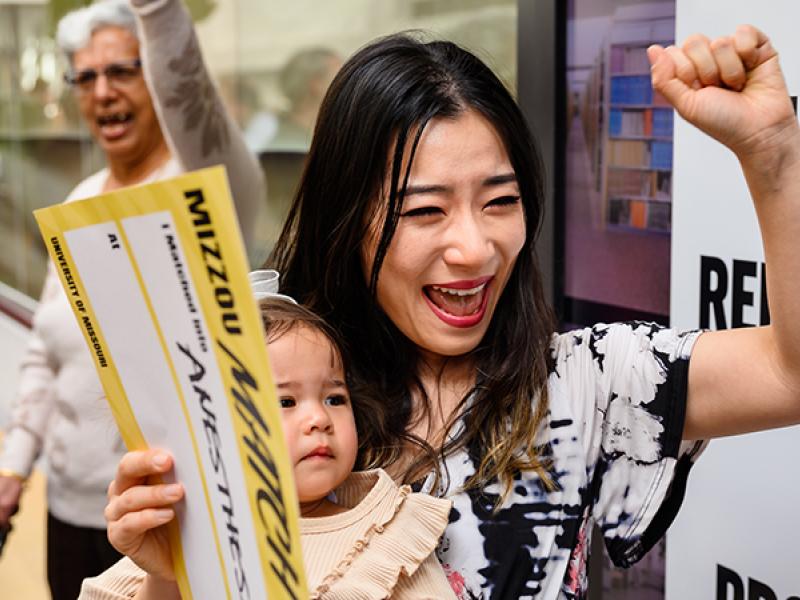
Medical Students Discover Their Residency Placements
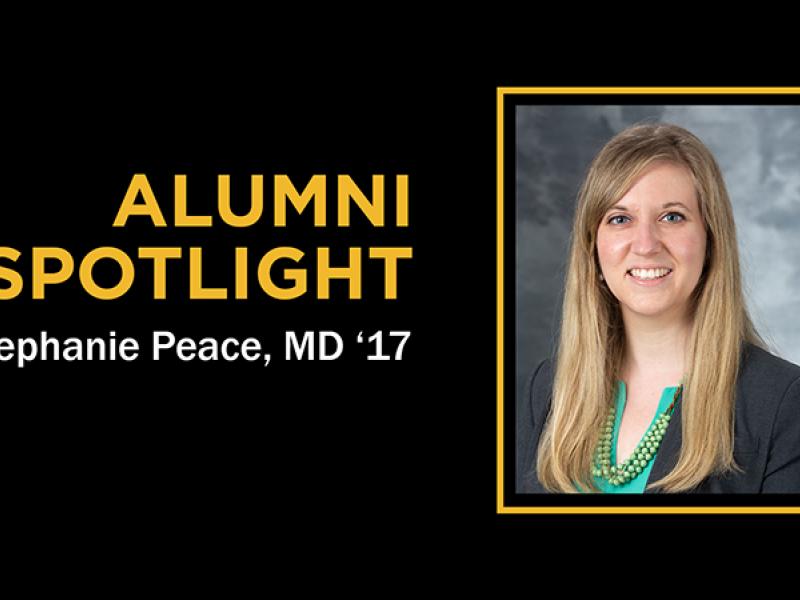
Alumni Spotlight: Stephanie Peace, MD ‘17
See All News
Columbia, MO 65212 Contact
Emergency Information
Sign up for our monthly newsletter
Copyright © 2023 — Curators of the University of Missouri . All rights reserved. DMCA and other copyright information . Equal Opportunity/Access/Affirmative Action/Pro Disabled & Veteran Employer . For website information, contact the Office of Communications . Contact the MU School of Medicine .
- Share full article
Advertisement
Supported by
Guest Essay
One Way to Help a Journalism Industry in Crisis: Make J-School Free

By Graciela Mochkofsky
Ms. Mochkofsky is the dean at CUNY’s Craig Newmark Graduate School of Journalism.
Many uncertainties haunt the field of journalism today — among them, how we can reach our audience, build public trust in our work, and who is going to pay for it all. But one thing is certain: as complicated and dark as the world looks today, it would be much worse if journalists were not there to report on it.
Research shows that towns that have lost sources of local news tend to suffer from lower voter turnout, less civic engagement and more government corruption. Journalists are essential just as nurses and firefighters and doctors are essential.
And to continue to have journalists, we need to make their journalism education free.
This might sound counterintuitive given the state of the industry. Shrinking revenue and decreasing subscription figures have led to a record number of newsroom jobs lost. Much of the local news industry has fallen into the hands of hedge funds focused on squeezing the last drops of revenue out of operations by decimating them. Billionaires who appeared as saviors just a few years ago have grown tired of losing money on the media organizations they bought. Public trust in the value of news is at historical lows, while a growing percentage of people are avoiding the news altogether.
Generative artificial intelligence, which is on the verge of reshaping almost everything around us, is bringing yet another technological disruption to the industry. Against this grim backdrop, authoritarian leaders are increasingly targeting journalists as political enemies both at home and abroad.
And yet there are still tens of thousands of jobs in news media in America, with exceptional journalism being produced every day. Some major organizations have even found ways to thrive in the digital age. Prominent foundation leaders have started an effort to pour hundreds of millions of philanthropic dollars into local journalism, and a movement has formed to push for federal and local legislation to direct public funding to news. An initiative to replant local news has founded dozens of nonprofit newsrooms in cities around the country. And a small but growing number of organizations are redefining the way news agendas are set, focusing on rebuilding public trust within small communities.
No matter how the news industry evolves, we will continue to need journalists. Successful business models for media are necessary, but the most crucial element for strong, independent journalism is the people who make it. Given the present stakes in the industry, our society and the world, we need mission-driven, imaginative news leaders who are not bound by the models of the past, who have the motivation and freedom to reimagine the field, and the empathy and commitment to serve the public interest, undaunted by attacks and threats.
We must also move beyond the lack of economic and demographic diversity that has long been a problem in the industry. News has too often been reported by predominantly middle-class, white, male journalists, resulting in coverage that has repeatedly missed the issues that are most important to the people receiving the news, contributing to the public’s lack of trust in the media.
In a resource-starved industry, few newsrooms can offer the type of mentoring, guidance and time that it takes to shape a great journalist. This is now primarily the responsibility of journalism schools. It is the civic duty of these schools to find and train reporters and news leaders, instill in them an ethical foundation, help develop their critical thinking skills, allow them to try and fail in a safe environment, open doors and provide a support network. (Journalism schools should also contribute research in a variety of areas, from the impact of A.I. to new business models to identifying and responding to emerging threats.)
But the cost of a journalism education has become an insurmountable barrier for exactly the kind of people we need the most. And those who, with great effort, manage to overcome that barrier, carry a weight that could limit their professional options.
Reporters burdened with debt are less likely to take professional risks and more likely to abandon the field. According to the Bureau of Labor Statistics, the median reporter salary in America is less than $56,000 a year, or about $27 per hour. In low-income areas, where news deserts are more prevalent, annual salaries can be as low as $20,000. A Wall Street Journal report about the debt-to-income ratio of alumni of 16 journalism masters programs found that many graduates leave with debts that exceed their postgraduate income.
As the dean of the Craig Newmark Graduate School of Journalism at the City University of New York, I can tell you that half measures won’t solve this quandary. My school was founded in 2006 as a public alternative to elite journalism schools in the city and it remains one of the most affordable in the nation.
Our in-state students pay about a quarter of the cost of an equivalent degree from top-tier schools with which we successfully compete. This year alone, 90 percent of our students are on scholarships, and a record 25 percent are attending tuition-free. We also waived the $75 application fee this admission cycle and saw an increase of more than 40 percent in our applicant pool.
Thanks to these policies, we have succeeded where the media industry keeps failing. Over 50 percent of our students are people of color and from underserved communities. Many couldn’t have attended our school if we hadn’t offered significant scholarship support. But that’s not enough. Though we rank as one of the journalism schools with higher-medium-income and lower-median-debt alumni, our students still don’t graduate fully debt-free.
This is why this year, we began a campaign to go fully tuition-free by 2027. While other schools might face different financial challenges, we hope that many more will follow us.
We need journalists whose only obligations are to the facts and the society they serve, not to lenders; who are concerned with the public interest, not with interest rates; who can make risky decisions and take the difficult path if that’s what the mission requires, free of financial burden. Journalism schools can help achieve that. In tough times, it is natural to mourn the past or lament the present, but what we really need is bold action.
Graciela Mochkofsky is the dean at CUNY’s Craig Newmark Graduate School of Journalism. She is the author, most recently, of “ The Prophet of the Andes: An Unlikely Journey to the Promised Land .”
The Times is committed to publishing a diversity of letters to the editor. We’d like to hear what you think about this or any of our articles. Here are some tips . And here’s our email: [email protected] .
Follow the New York Times Opinion section on Facebook , Instagram , TikTok , WhatsApp , X and Threads .
Skip to Content
2024 Alumni AeroBuffs Awardees
Patrick binning (aeroengr ms'94, phd'97).
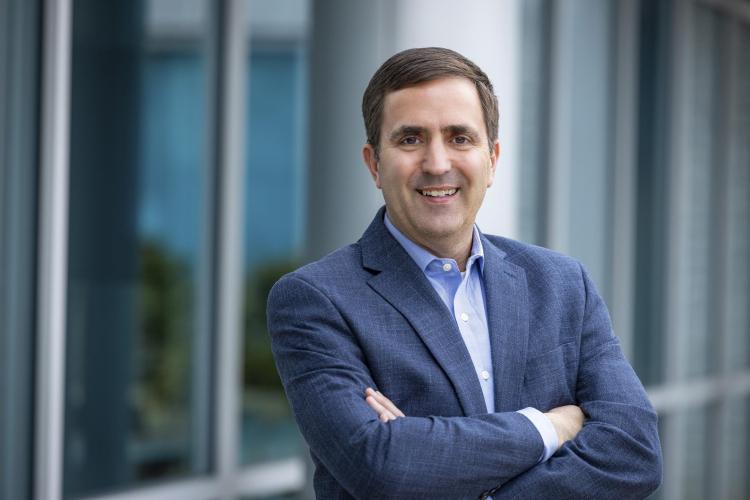
Patrick Binning received his MS and PhD degrees from the Department of Aerospace Engineering Sciences at the University of Colorado Boulder; he received his BS in aerospace engineering from the University of Cincinnati.
His graduate work, performed under the direction of Professor George Born through the Colorado Center for Astrodynamics Research, studied the use of measurements from spaceborne GPS receivers for precise absolute and relative (spacecraft to spacecraft) position and time estimation. He later continued to research and publish on this work while employed by the Naval Research Lab (NRL), culminating in a co-patent [#6085128] for the Orbit/Covariance Estimation And Analysis (OCEAN) determination for satellites.
Binning’s career began as a coop student in 1989 at the Naval Surface Warfare Center researching missiles for anti-satellite uses. After leaving Boulder, he spent eight years at NRL, then in 2002 became a program manager at the National Reconnaissance Office, where he researched new spaceborne applications of intelligence collection.
He was later responsible for program oversight of C4 space programs in the Office of the Secretary of Defense in the Pentagon, and initiated and served as Program Manager of the Precision Tracking Space System for the Missile Defense Agency (MDA).
In 2016, Binning was named Mission Area Executive for National Security Space at the Johns Hopkins Applied Physics Laboratory. He and his team have delivered a number of ground-breaking technical missions, including the Spacebased Kill Assessment program for the MDA and the Deep Space Advanced Radar Concept Technology Demonstration for the Space Force.
Binning also serves as the Program Chair of the Space Systems Engineering master’s program at the Johns Hopkins University Whiting School of Engineering.
In 2020, Binning created the Cislunar Security Conference at APL, which brings subject matter experts from government, industry, and academia together to help the nation navigate this strategically critical new frontier. He also helped spearhead the September 2022 selection of the Johns Hopkins School of Advanced International Studies (SAIS) by the Space Force to host its Professional Military Education (PME) program. For this initiative, Binning provides classified research opportunities to the Space Force, while his Space Systems Engineering program provides space-based STEM electives. Recently, his APL team was selected as the Technical Consortium lead for the Space Force National Space Test and Training Complex.
Binning’s entire career has been focused on national security through space effects, while finding ways to educate and train the next generation of space engineering leaders for our nation.
- Alumni Awards 2024
Apply Visit Give
Departments
- Ann and H.J. Smead Aerospace Engineering Sciences
- Chemical & Biological Engineering
- Civil, Environmental & Architectural Engineering
- Computer Science
- Electrical, Computer & Energy Engineering
- Paul M. Rady Mechanical Engineering
- Applied Mathematics
- Biomedical Engineering
- Creative Technology & Design
- Engineering Education
- Engineering Management
- Engineering Physics
- Environmental Engineering
- Integrated Design Engineering
- Materials Science & Engineering
Affiliates & Partners
- ATLAS Institute
- BOLD Center
- Colorado Mesa University
- Colorado Space Grant Consortium
- Discovery Learning
- Engineering Honors
- Engineering Leadership
- Entrepreneurship
- Herbst Program for Engineering, Ethics & Society
- Integrated Teaching and Learning
- Global Engineering
- Mortenson Center for Global Engineering
- National Center for Women & Information Technology
- Western Colorado University

IMAGES
VIDEO
COMMENTS
If you're interested in studying translation and interpretation but don't have the time to devote to an MA or Ph.D., consider reviewing our list of the top U.S. Certificate Programs. Binghamton University Location: Binghamton, New York Type of Program: MA or Ph.D. (Translation) Duration: ~ 1.5 years (MA) Number of credits: 32 (MA) In ...
PhD in Translation Studies. The doctoral program is primarily designed to prepare its graduates for careers in both the academic field and scholarly research, including research-informed translation. It offers individualized interdisciplinary tracks to accommodate a variety of backgrounds. The doctoral program offers the following features: ...
Program Overview. Binghamton University's Translation Research and Instruction Program (TRIP) is the first doctoral degree in translation studies in the United States. In line with the University's progressive and multifaceted approach to education at large, TRIP represents another way in which the University's liberal arts departments ...
Find the best Ph.D in the field of Translation & Interpreting from top universities in United States. Check all 21 programmes. ... the PHS Clinical and Translational Epidemiology (CTE) emphasis in the PhD Program is distinguished by its rigorous training in epidemiologic methods and focus on collaboration with clinicians. ... The Translation ...
Contact. The co-chairs of the Executive Committee that governs the Graduate Secondary Field in Translation Studies for 2023-2024 are Professors Sandra Naddaff and Jeffrey Schnapp. The members of the Executive Committee for 2023-2024 are: Luke Leafgren, Sandra Naddaff, Luis Girón-Negrón, John Mugane, Stephanie Sandler, Jeffrey Schnapp ...
The Translation Studies Ph.D. program is designed for students who want to conduct research and contribute to the field of translation studies. With a blend of theoretical and practical knowledge, students will work with experienced faculty and have access to resources and opportunities to develop your skills.
Program Specific Requirements. MA in interpretation, translation or related field; A 15-20 page academic writing sample, or a 15-20 page essay, including references and citations (APA style) on the following: Please describe and assess three peer-reviewed articles or books in the field of Interpretation Studies that have shaped your thinking about the interpreting process and/or the role of ...
This page shows a selection of the available PhDs in United States. If you're interested in studying a Translation & Interpreting degree in United States you can view all 22 PhDs. You can also read more about Translation & Interpreting degrees in general, or about studying in United States. Many universities and colleges in United States offer ...
The PhD Emphasis. Comparative Literature is the home Program for the Graduate Emphasis in Translation Studies. The current Advisor for the TS Emphasis is Professor Dominique Jullien (Chair, Comparative Literature). Courses in Translation Studies engage the theoretical questions that are germane to a philosophy of translation and that inform the ...
About This Program. The Translation Studies Ph.D. program is designed for students who want to conduct research and contribute to the field of translation studies. With a blend of theoretical and practical knowledge, students will work with experienced faculty and have access to resources and opportunities to develop your skills.
Yale Graduate School of Arts and Sciences. Yale University,. Graduate School,. NEW HAVEN, CT,. 2 Niche users give it an average review of 4.5 stars. Featured Review: Master's Student says The resources at Yale are outstanding.While some of the required courses are slow-moving and less informative, I do have more academic freedom in my second year to the program to take classes that I....
The Ph.D. degree in Translation Studies from Kent State University is a research-based program that provides advanced training in translation studies. Ph.D. / Full-time / On Campus Kent State University Kent, Ohio, United States
Maryland (inc. Annapolis) Missouri (inc.Jefferson City) Nevada (inc. Carson City) New Jersey (inc. Trenton) Ohio (inc. Columbus) Graduate Certificates & Diplomas. Doctoral Degrees. Online/Distance. 27 Universities in the USA offering postgraduate Translation degrees and courses.
A master's degree in translation and interpreting is a graduate-level academic program designed to provide students and working professionals with advanced training in the fields of translation and interpreting. The New York University SPS MS in Translation and Interpreting online program is intended for students with proficiency in at least ...
While Mayo Clinic Graduate School of Biomedical Sciences administers the overall Ph.D. Program, CCaTS delivers the clinical and translational science track's course work and oversees the mentored research experience, a cornerstone of the program. Mentors are Mayo Clinic faculty from a wide range of disciplines.
The Middlebury Institute translation and interpretation programs prepare you for international careers in related ... Launch your career in the $60 billion language services industry with a master's from one of the world's leading graduate schools for translation and interpretation. ... and they are willing to help us become one of them ...
University Programs American University Undergraduate and graduate Certificate in Translation (French, German, Russian, Spanish) Department of Language & Foreign Studies Asbury 326 4400 Massachusetts Avenue, NW Washington, D.C. 20016-8045 Phone: (202) 885-2381 Fax: (202) 885-1076
Translational Science (PhD) Admission is only available for the Spring semester Required Degree: Bachelor's Degree from an accredited college or university in the United States or have proof of equivalent training at a foreign institution.: Minimum GPA: 3.0 (on a 4.0 scale) Departments may consider GPA of last 60 semester credit hours Coursework
The PhD Program in Translational Biomedical Science is focused on creating a new kind of investigator—one who has a much broader view. A flexible curriculum in basic, translational and population health sciences and a dual mentoring approach for dissertation research make it a uniquely powerful way to prepare the research leaders of tomorrow.
Find the best PhD programmes in the field of Translation & Interpreting from top universities worldwide. ... (CTE) emphasis in the PhD Program is distinguished by its rigorous training in epidemiologic methods and focus on collaboration with clinicians. Ph.D. / Full-time / On Campus. University of UtahSalt Lake City, Utah, United States. Ranked ...
GW's PhD in Translational Health Sciences program incorporates a low residency format, combining online coursework with on-campus facilitated learning. Two weekends each semester, students gather at the Virginia Science and Technology Campus in Virginia to engage in active learning with colleagues, faculty, advisors, mentors, and content experts.
Watch on. The Translational Biosciences PhD program represents a new paradigm for graduate training in biomedical research. This program will span the entire breadth of the biomedical research spectrum, from basic science discoveries to improved clinical outcomes and population health. Students in the program will acquire a deep knowledge base ...
The Home Energy Assistance Program (HEAP) has extended the deadline for Regular and Emergency HEAP applications to April 12 and is now accepting applications for a second emergency benefit from eligible New Yorkers who have used up their regular and first emergency benefits. ... Contact us by phone: Albany: (518) 474-8418 New York City: (212 ...
Following this successful launch, the program was renewed and enhanced in the Governor's 2023 State of the State plan, with $1 million dedicated in her Executive Budget this year. The program continues to play a critical role in the Governor's commitment to making local food more accessible to all New Yorkers and to encourage more urban ...
Understand Your Expenses and Financing Options. Per-credit tuition rates for the four programs in our guide range from $442 to $695. Over the course of a typical 60-credit Ph.D. program, this ...
One Way to Help a Journalism Industry in Crisis: Make J-School Free. March 18, 2024. Pat Thomas. 531. By Graciela Mochkofsky. Ms. Mochkofsky is the dean at CUNY's Craig Newmark Graduate School ...
General Inquiries: 303-735-4900 429 UCB 3775 Discovery Drive Boulder, CO 80303. Visit our contact page for more information.. College of Engineering & Applied Science. Phone: 303-492-5071